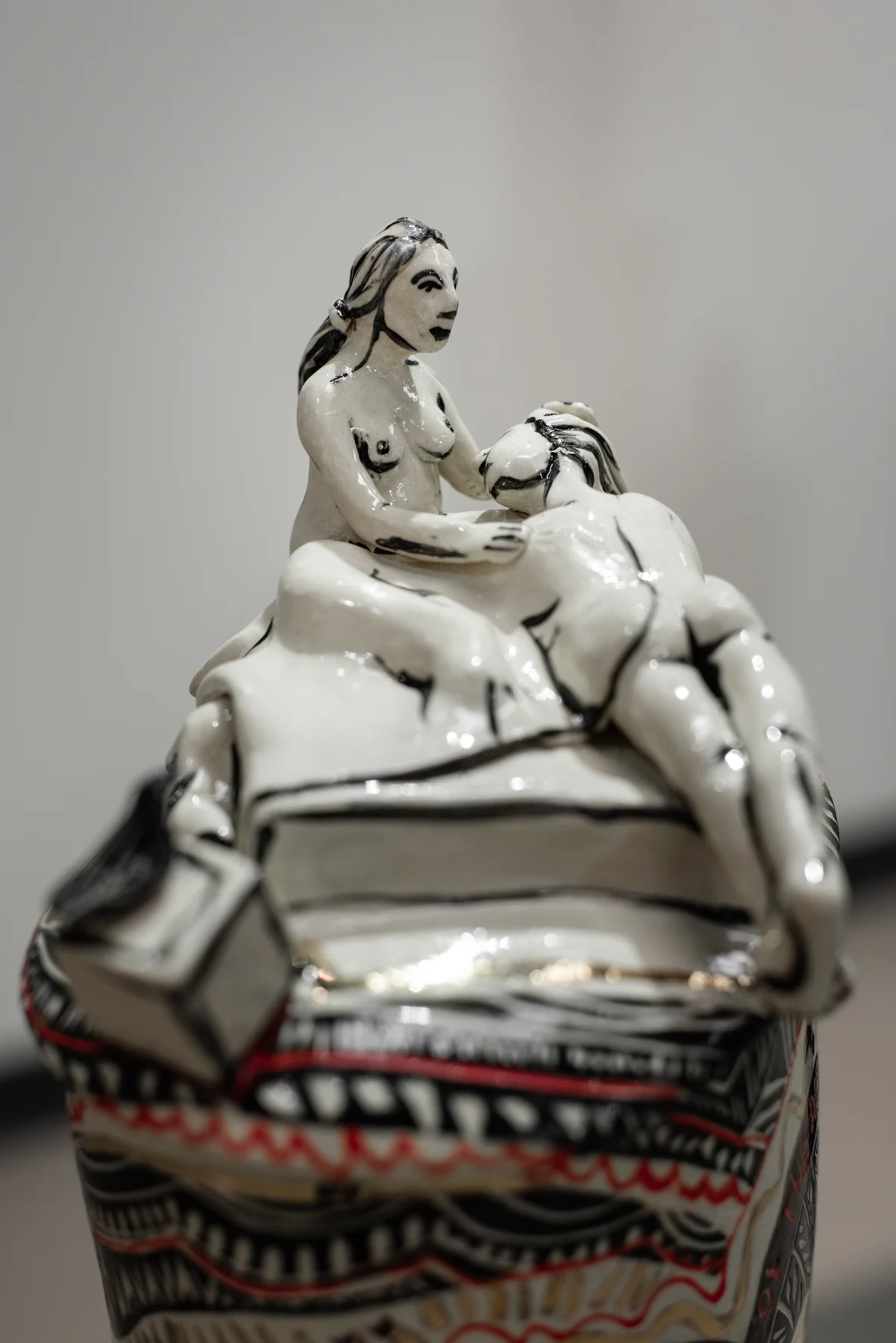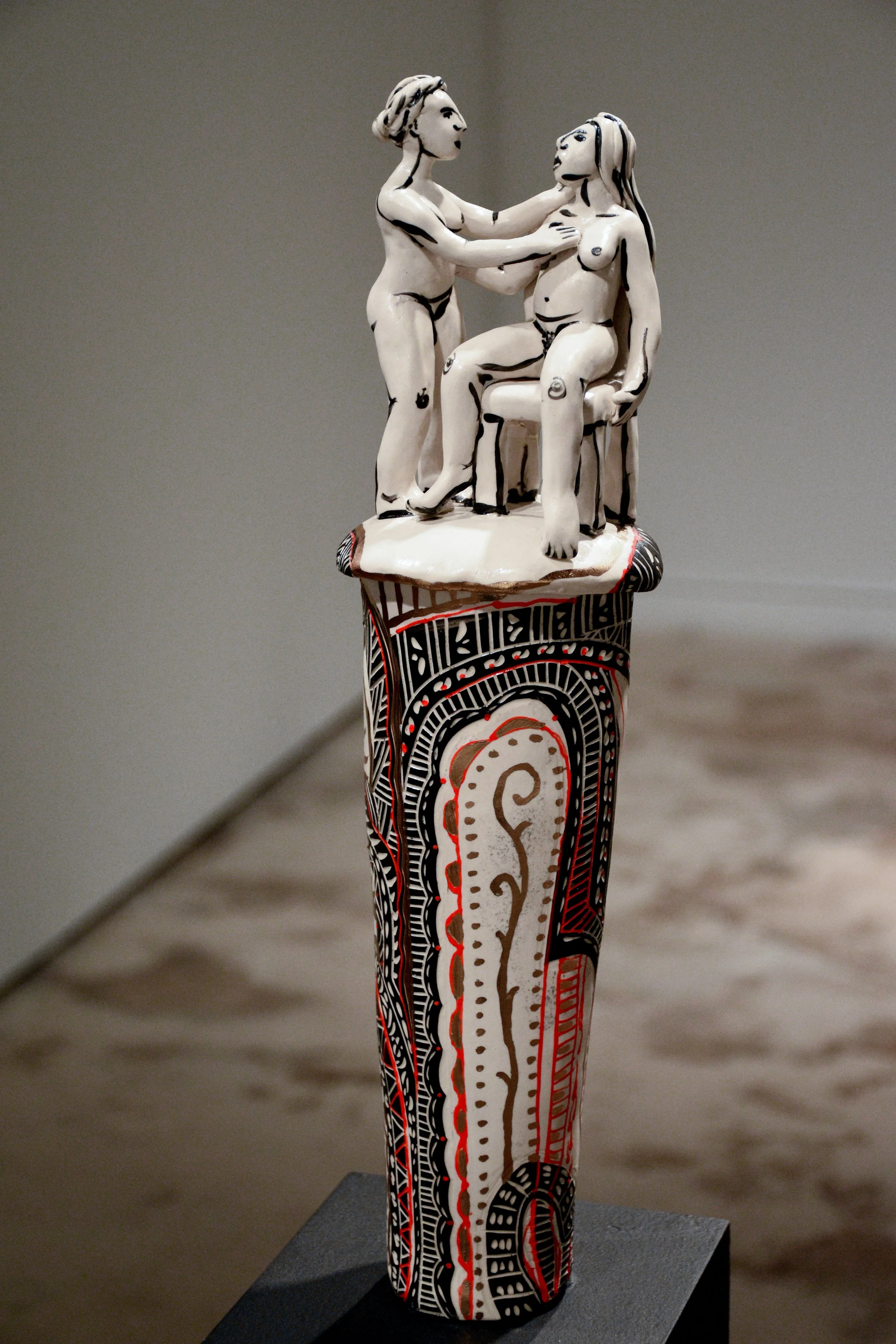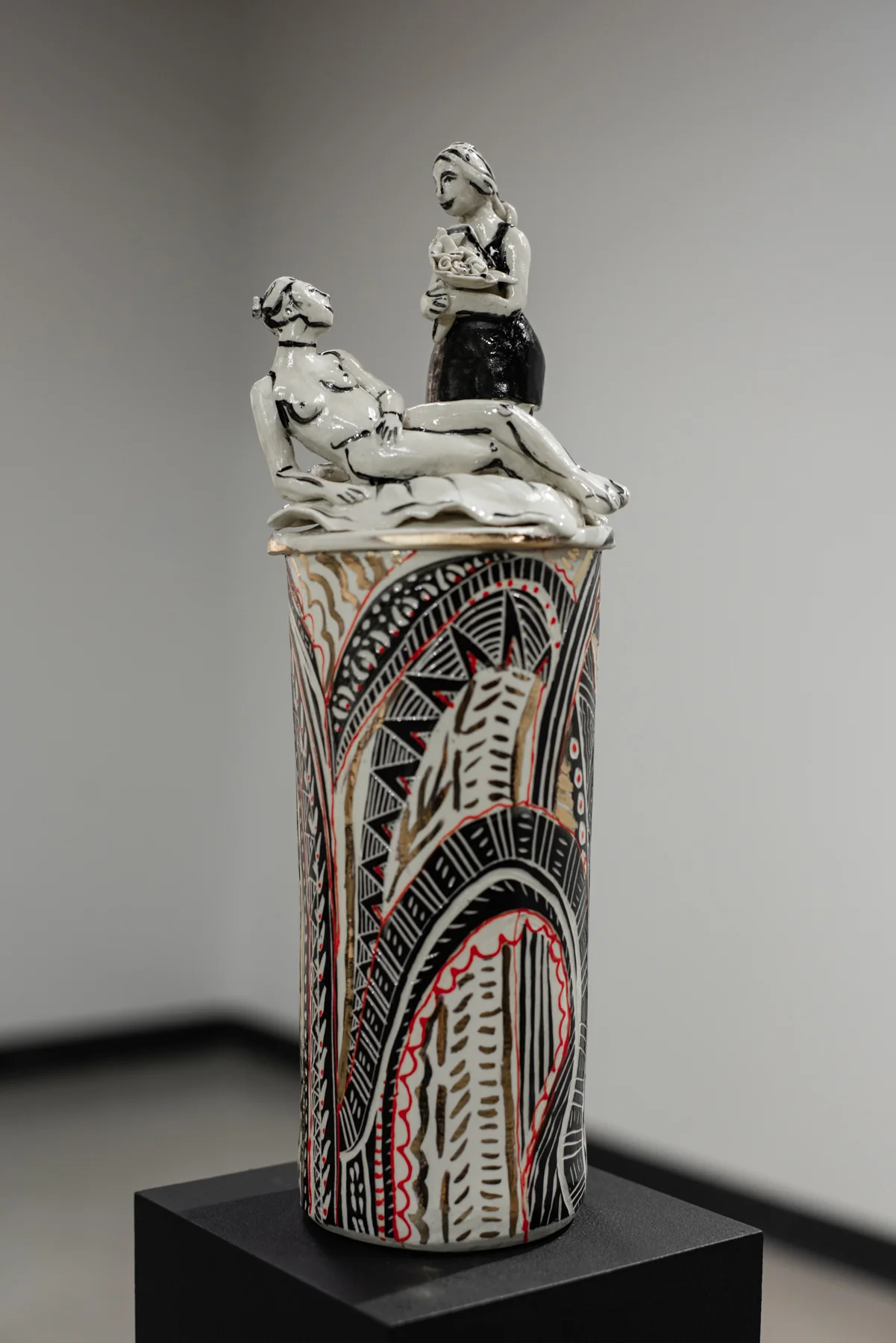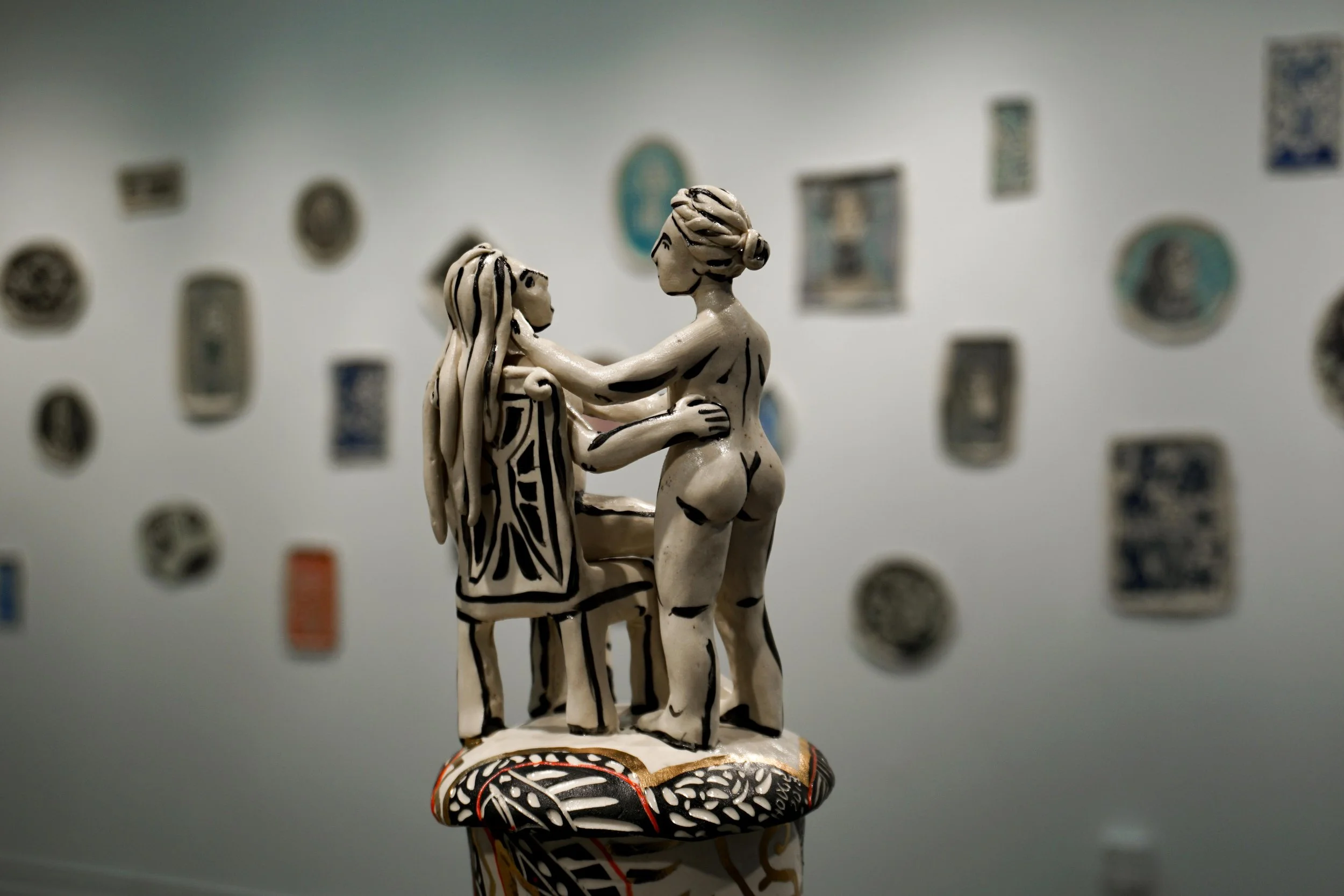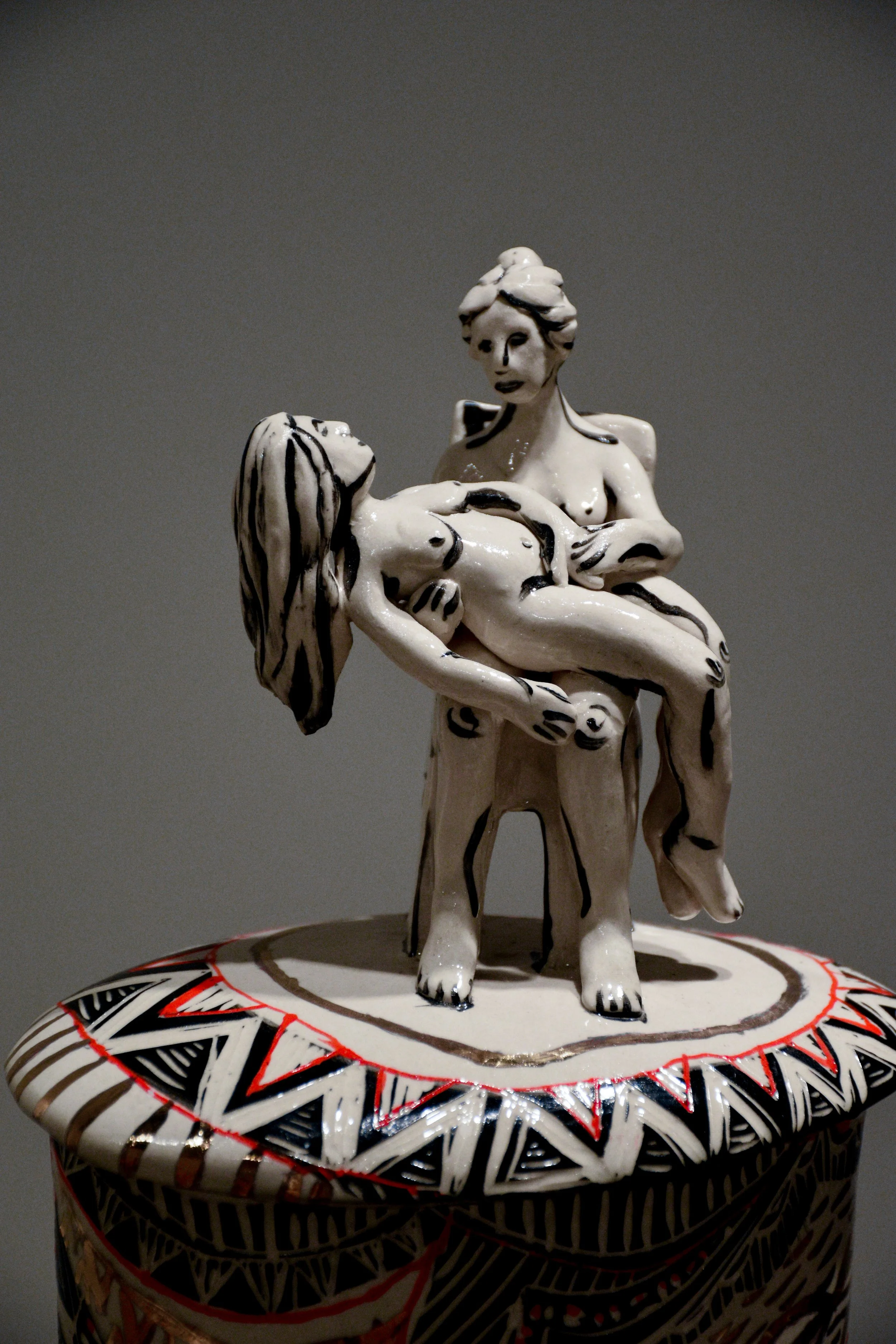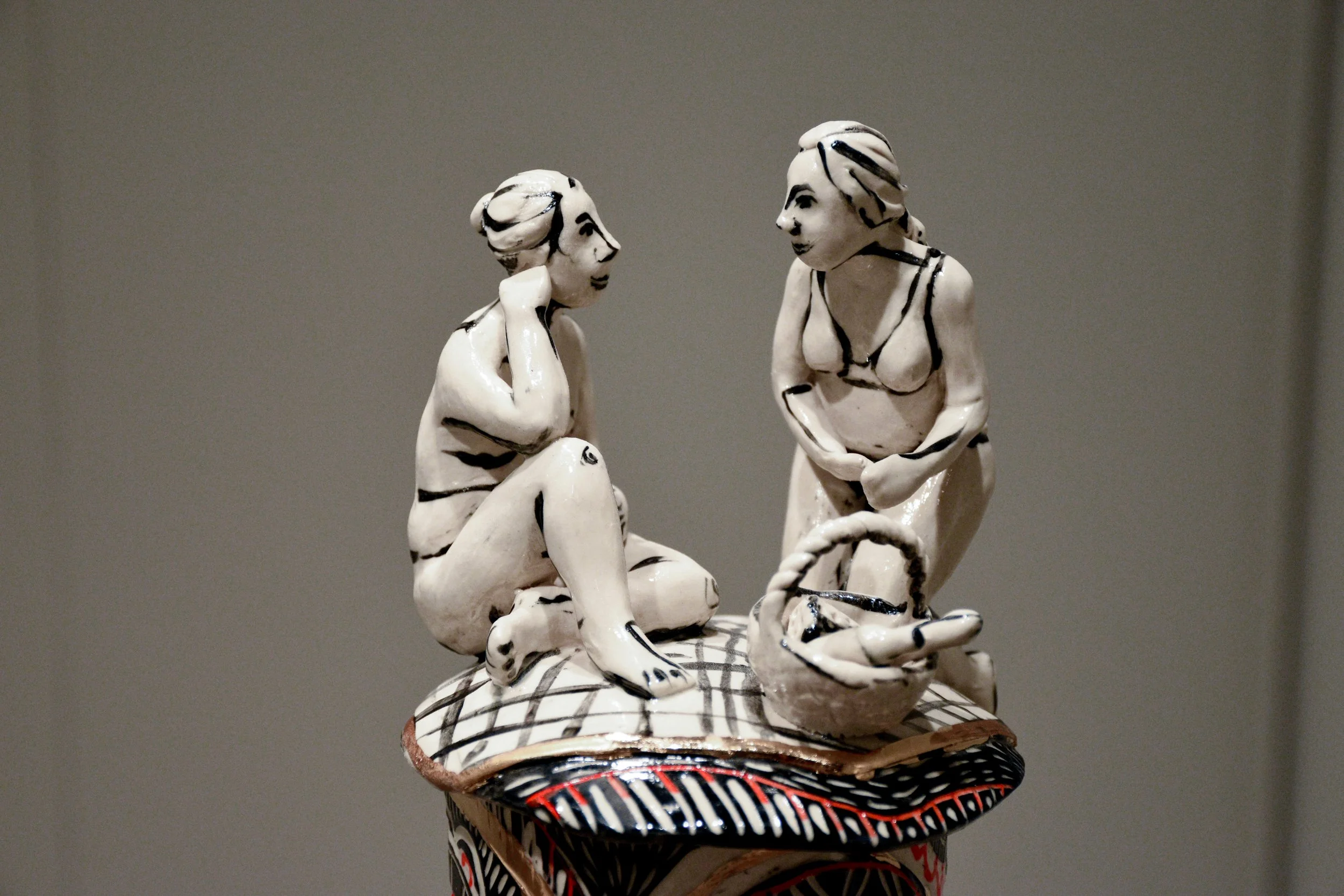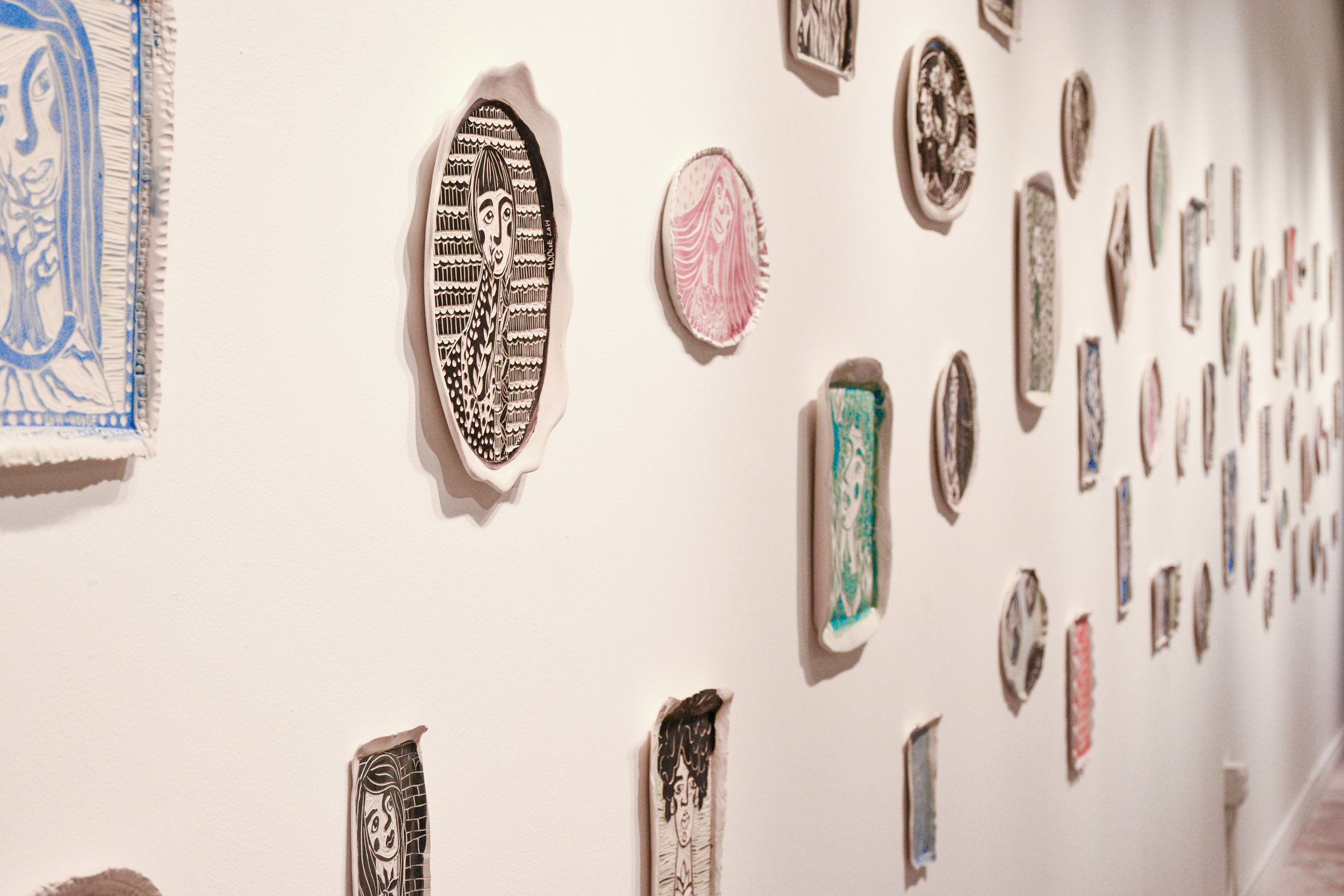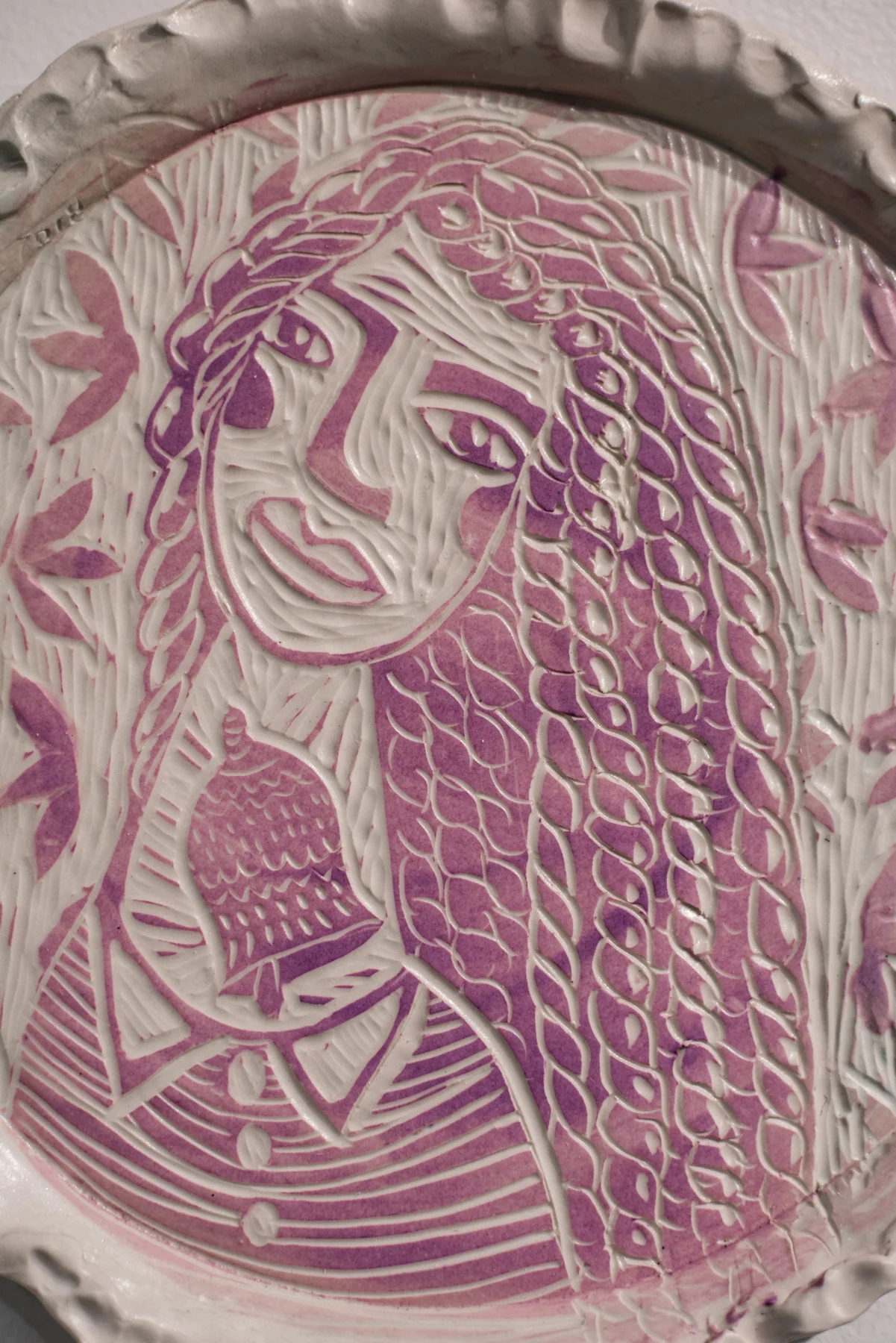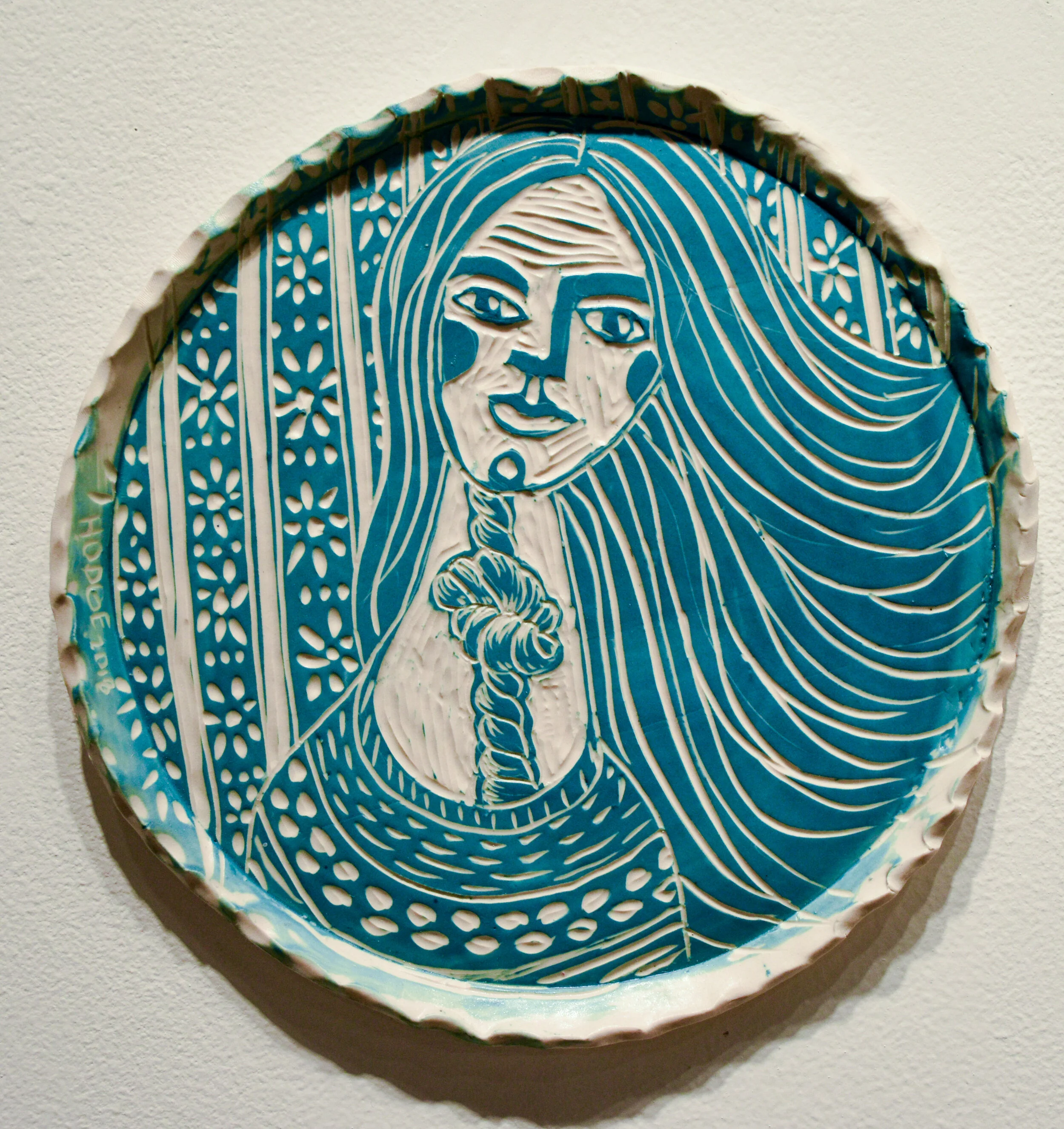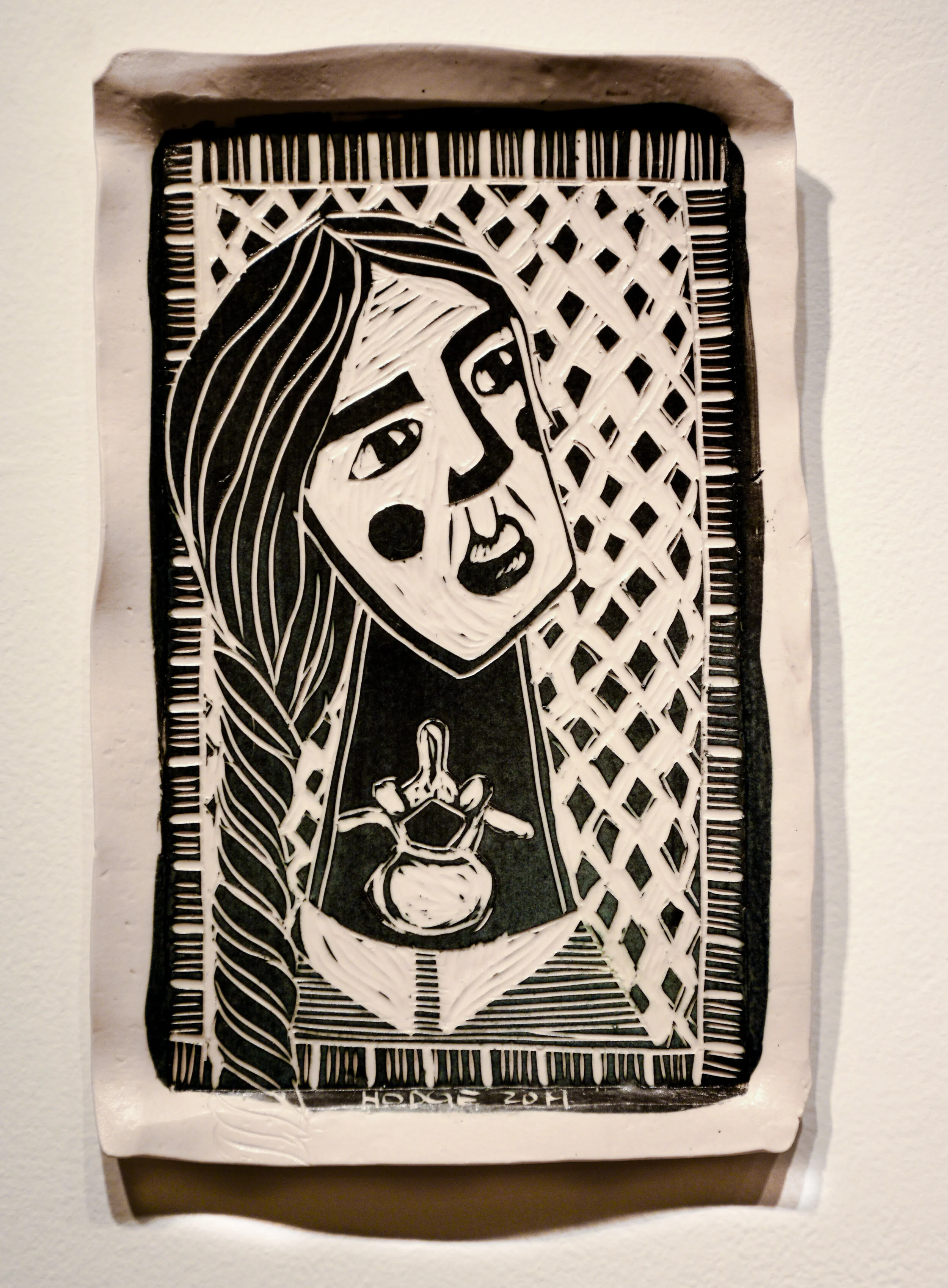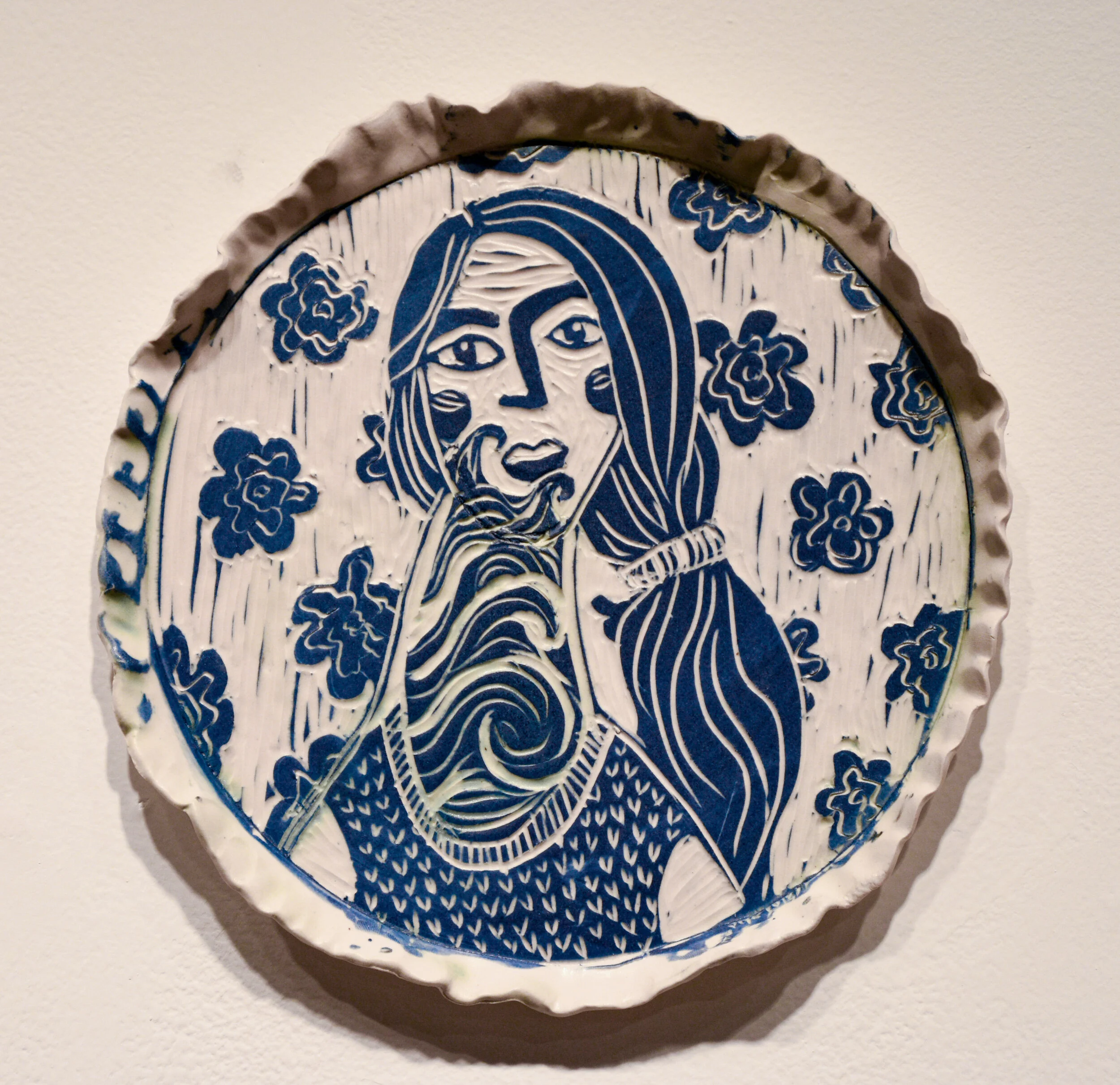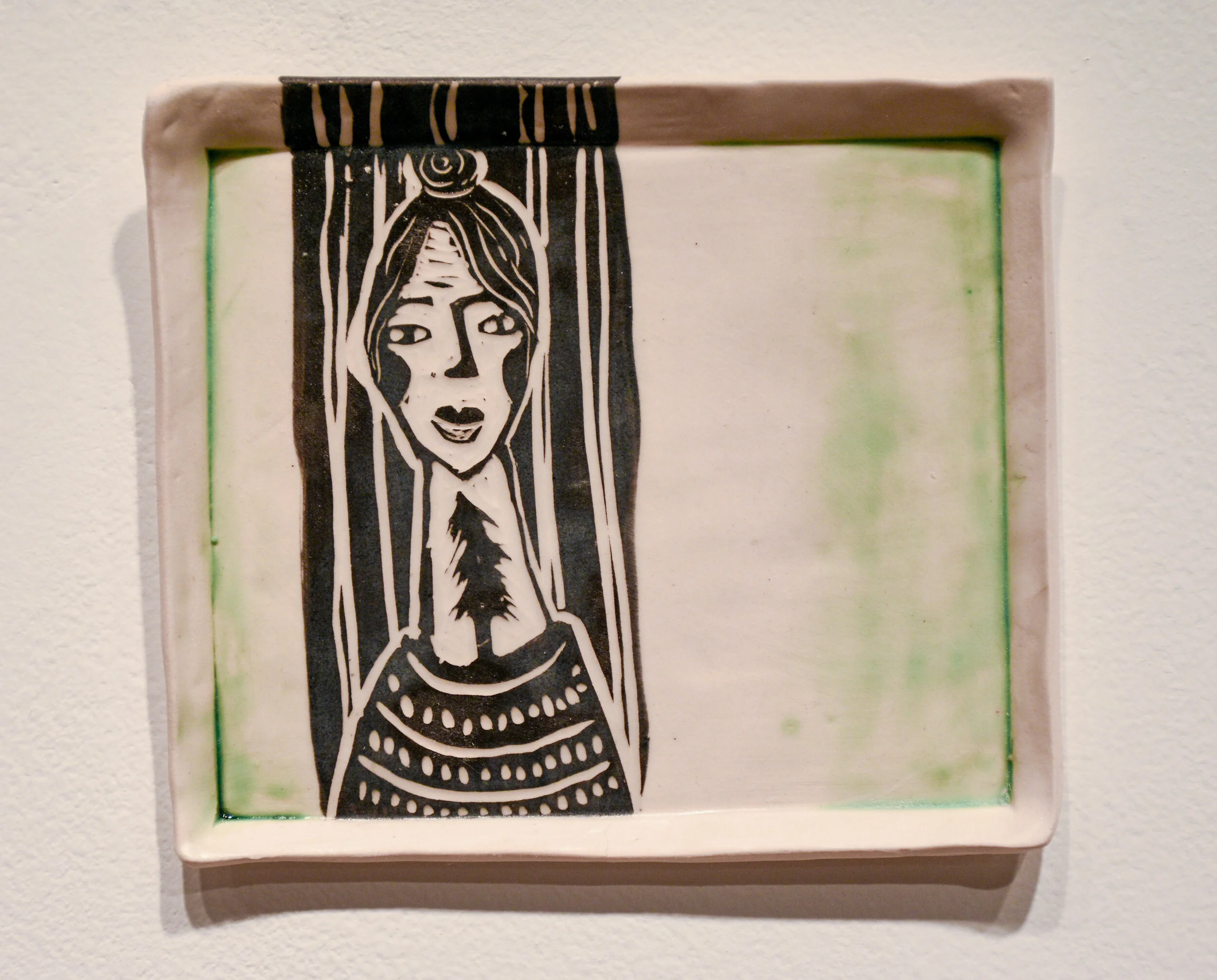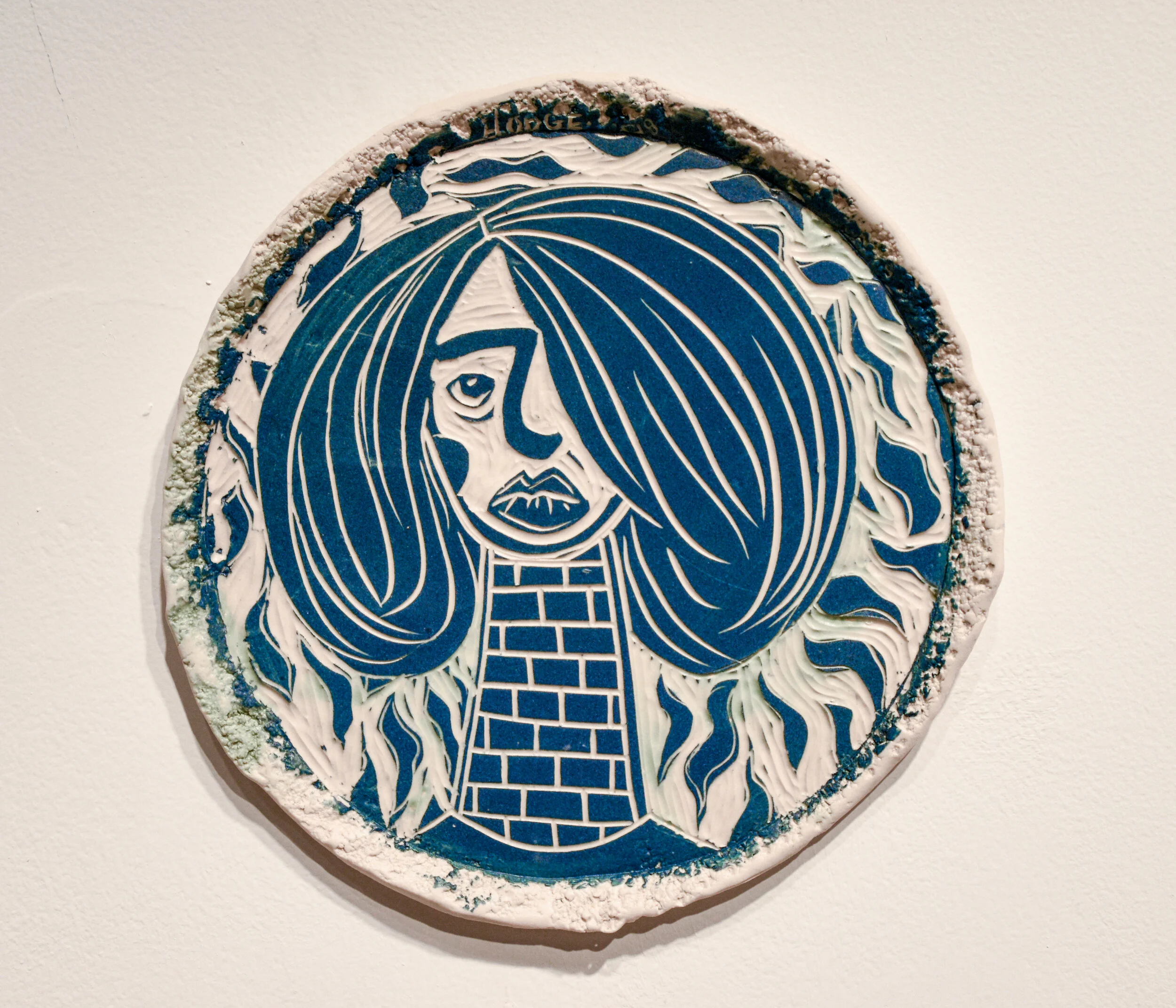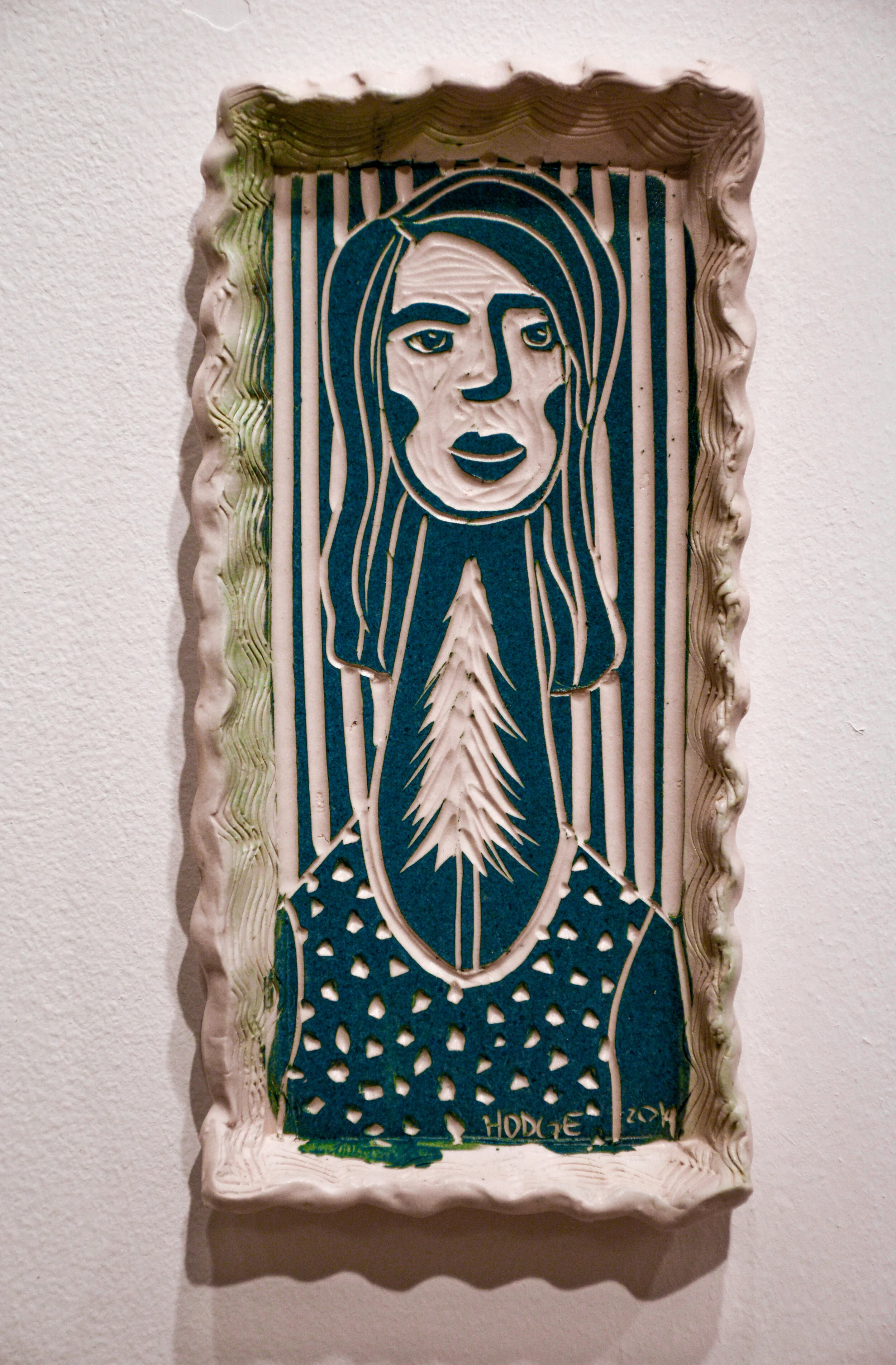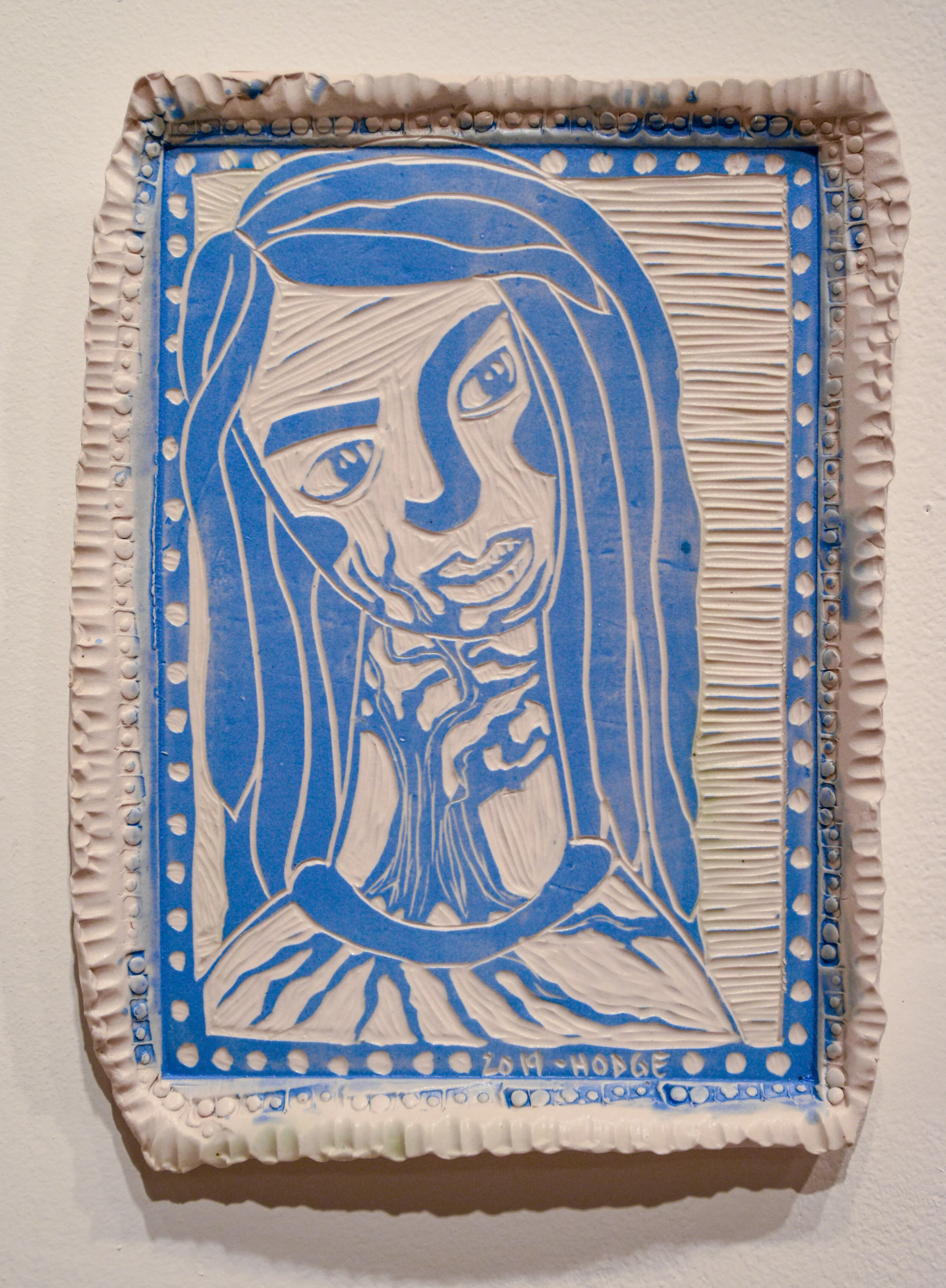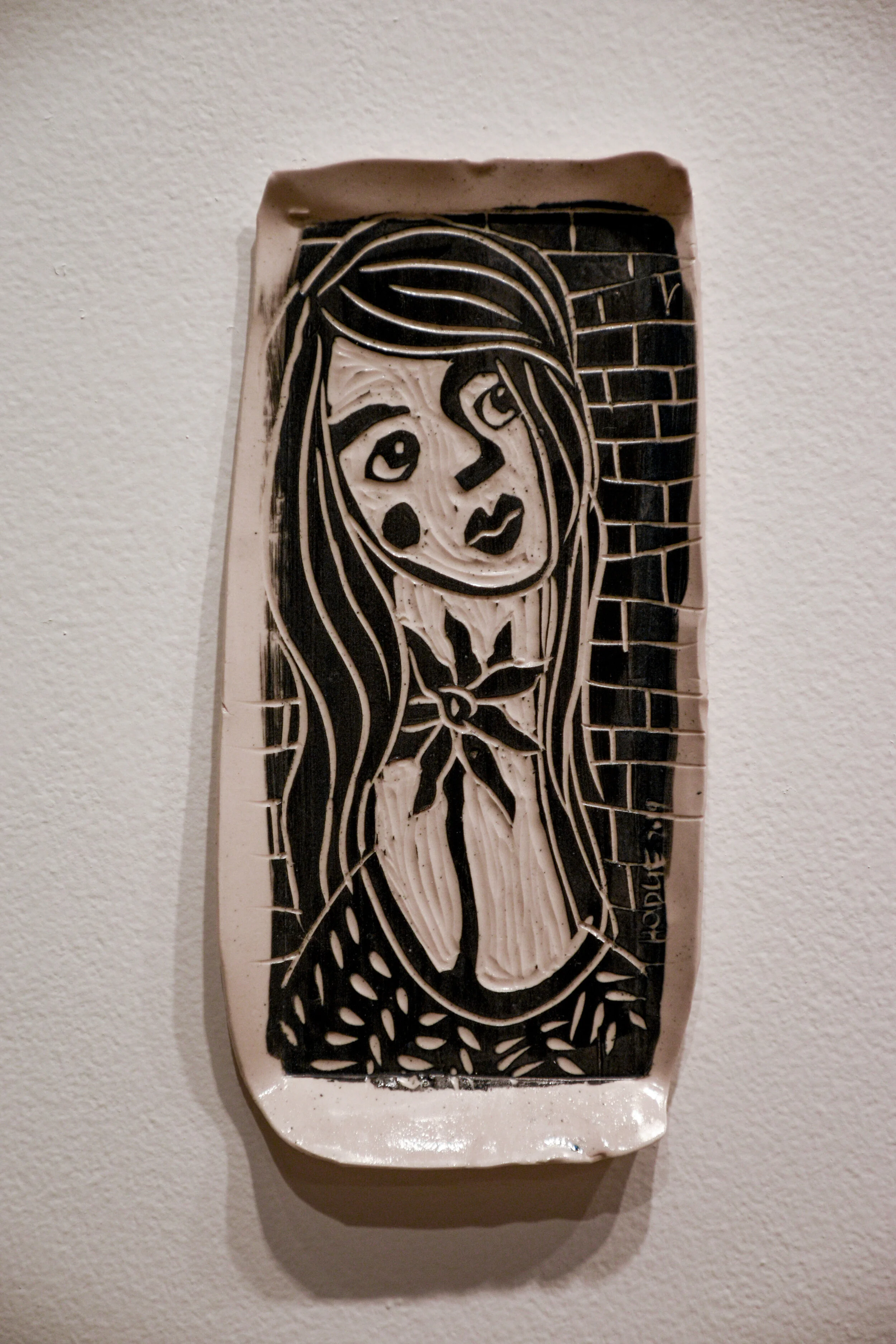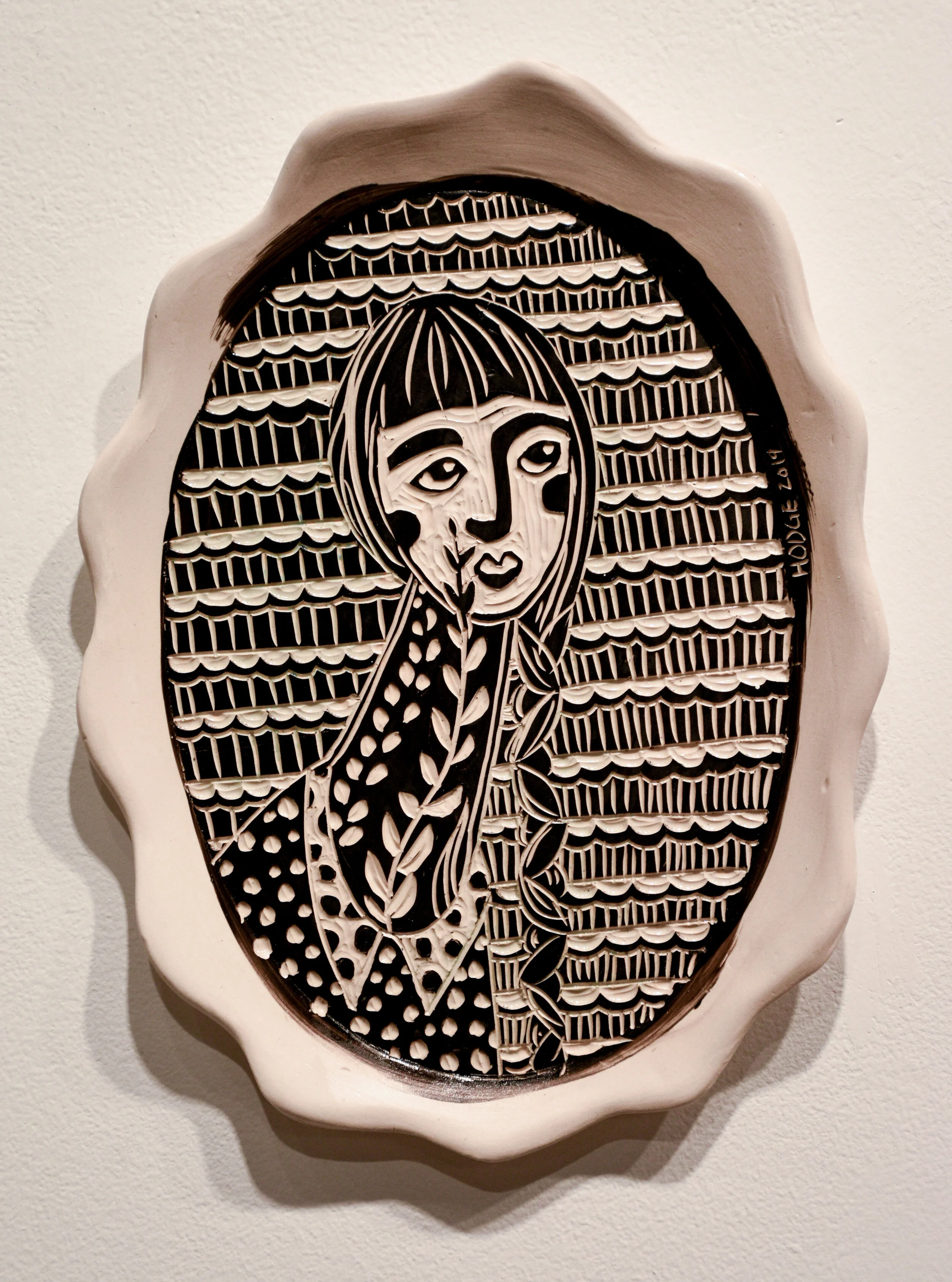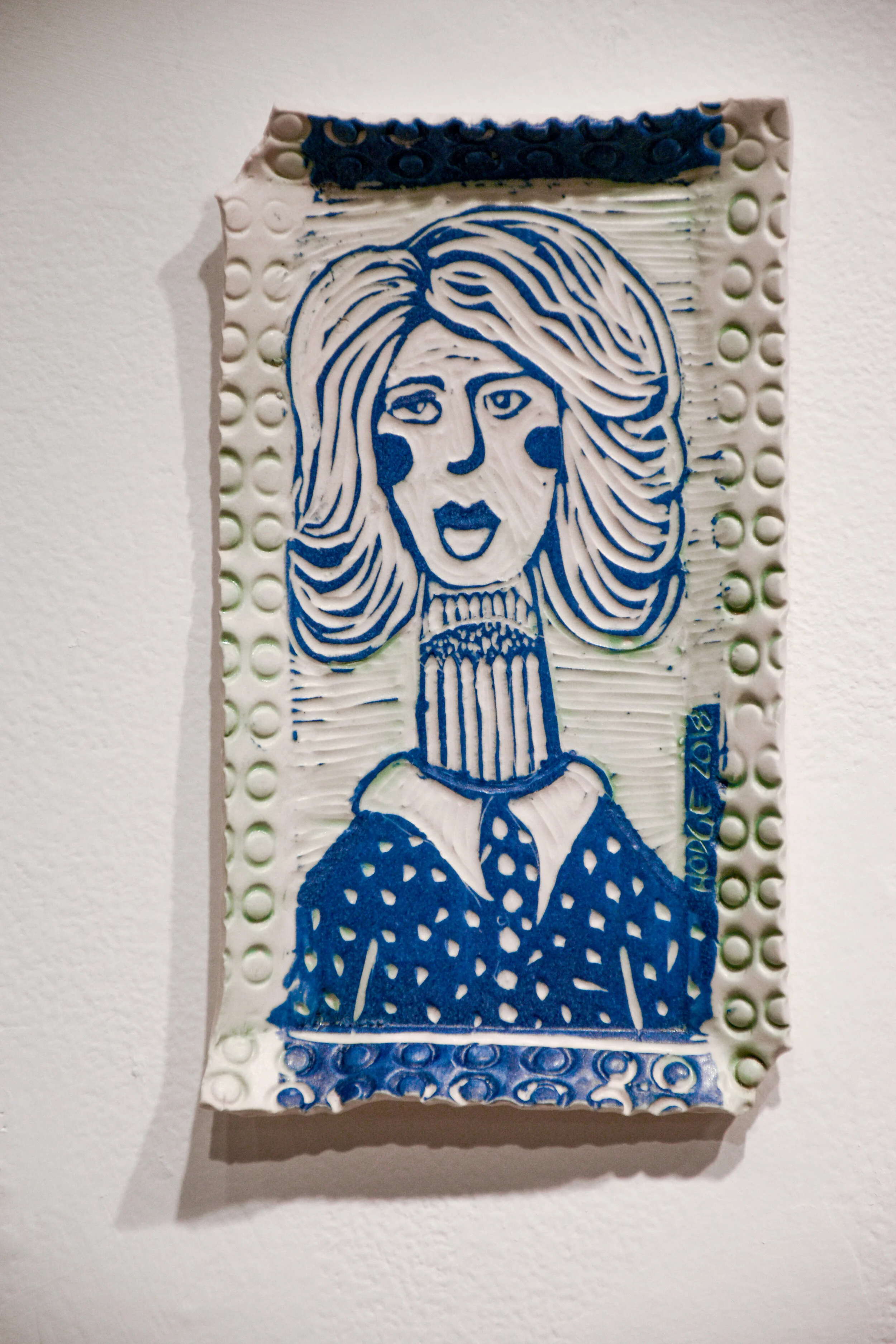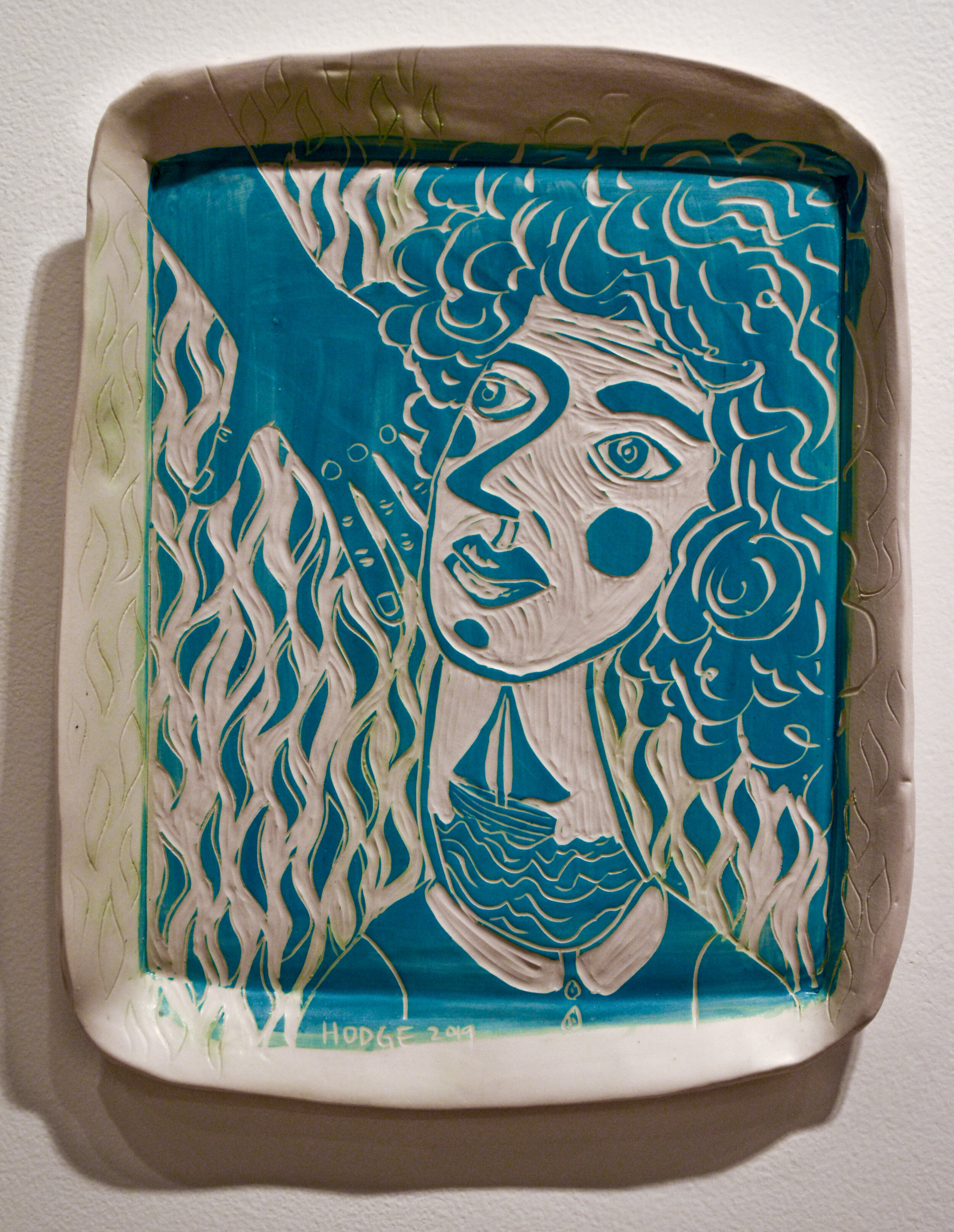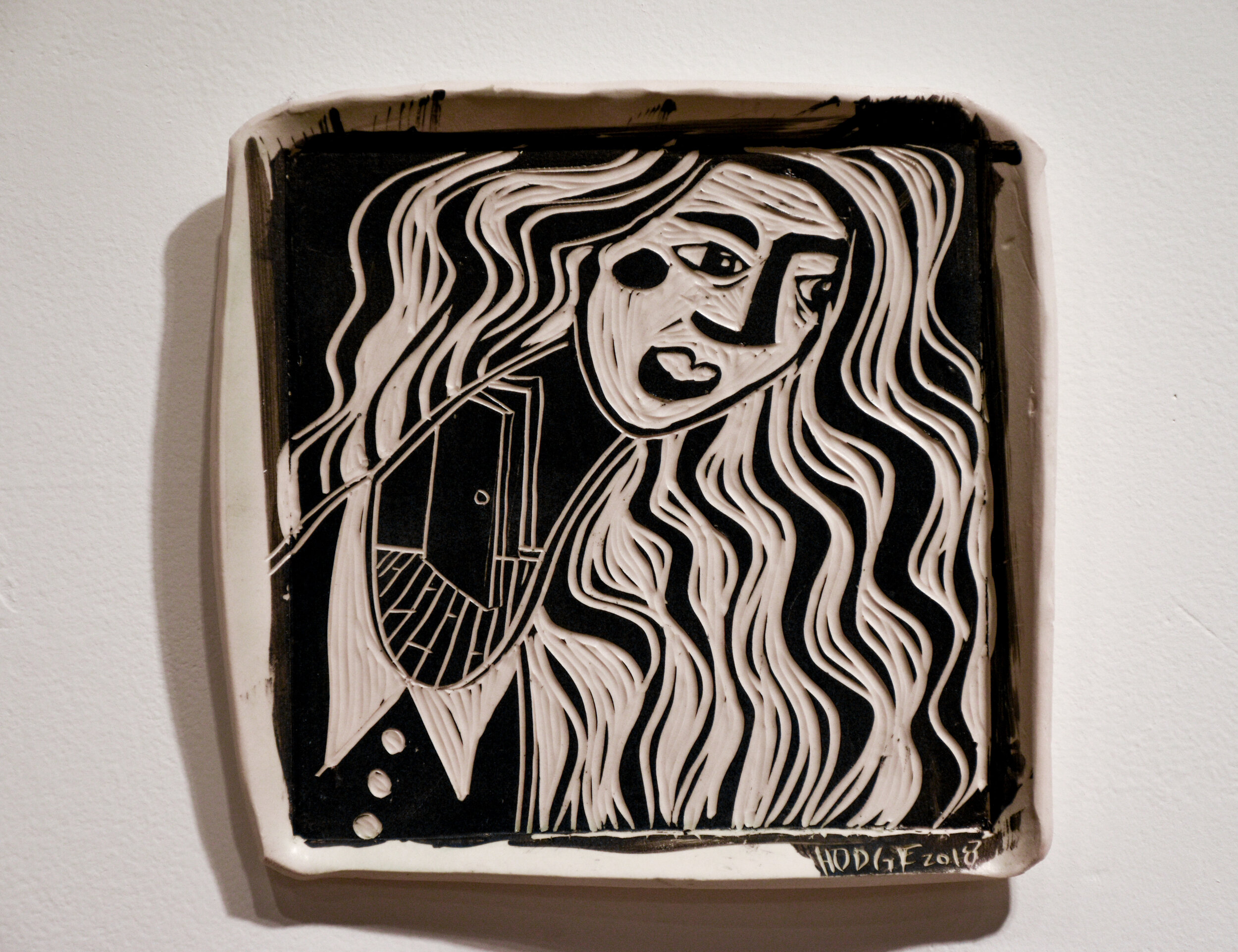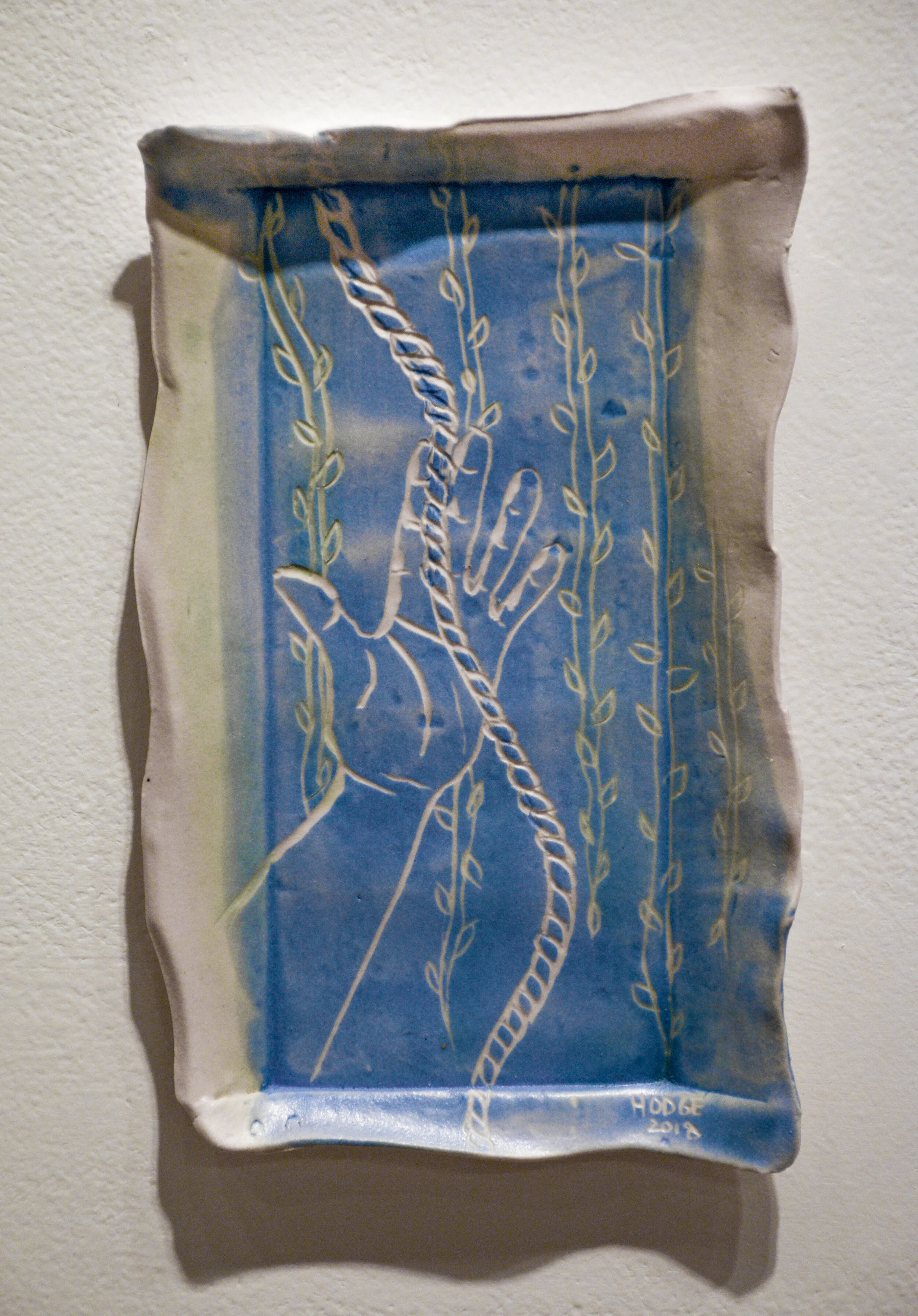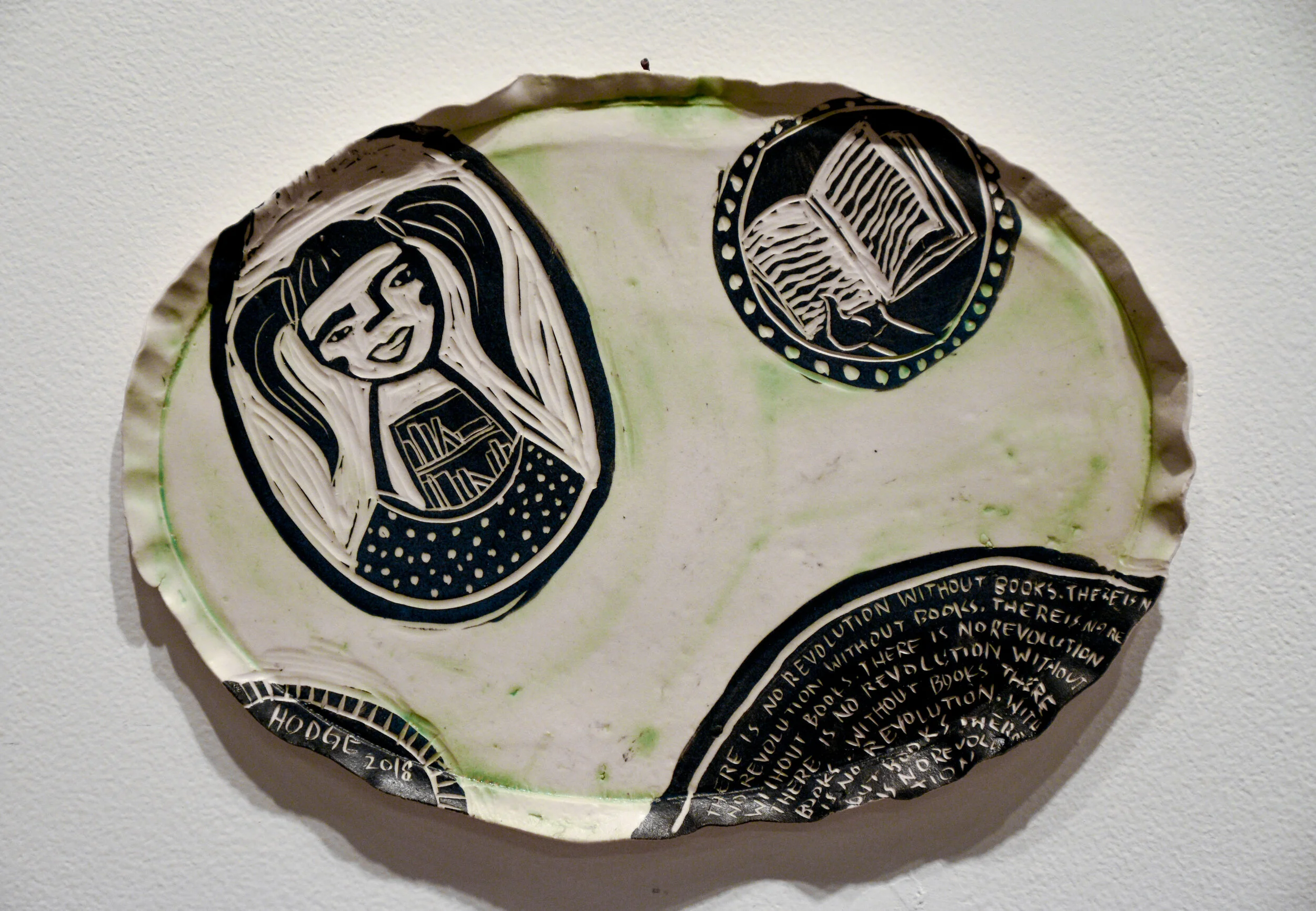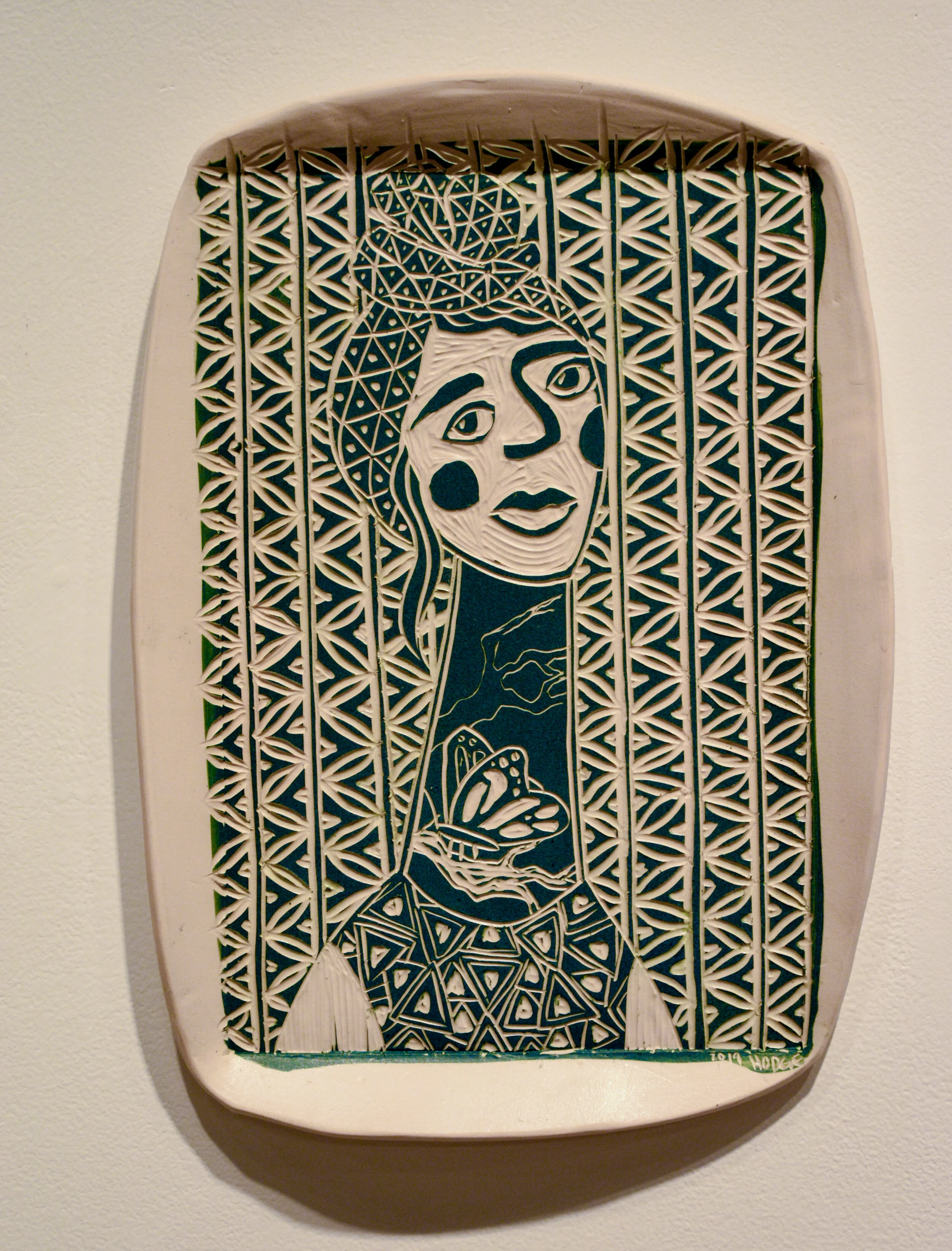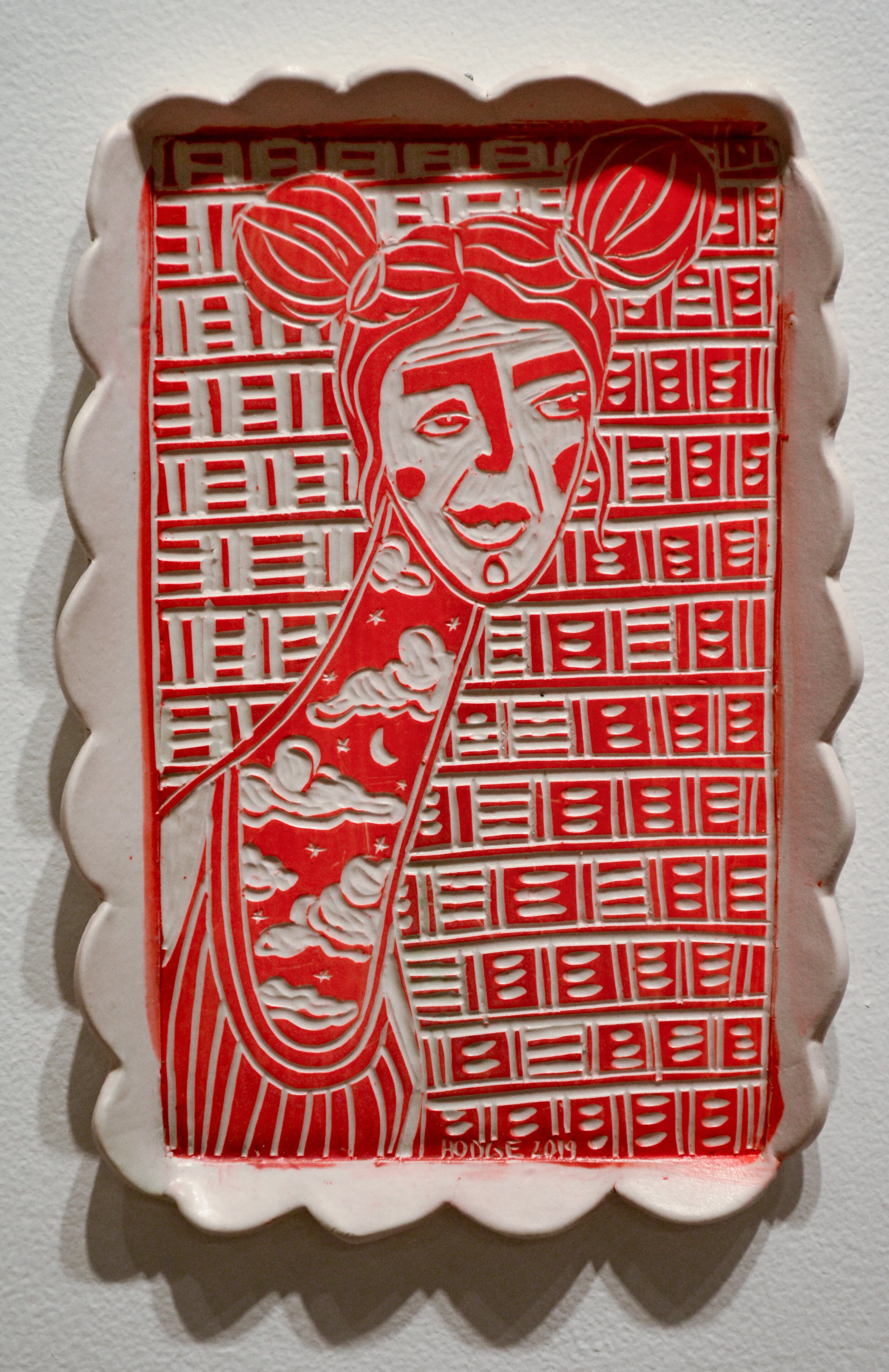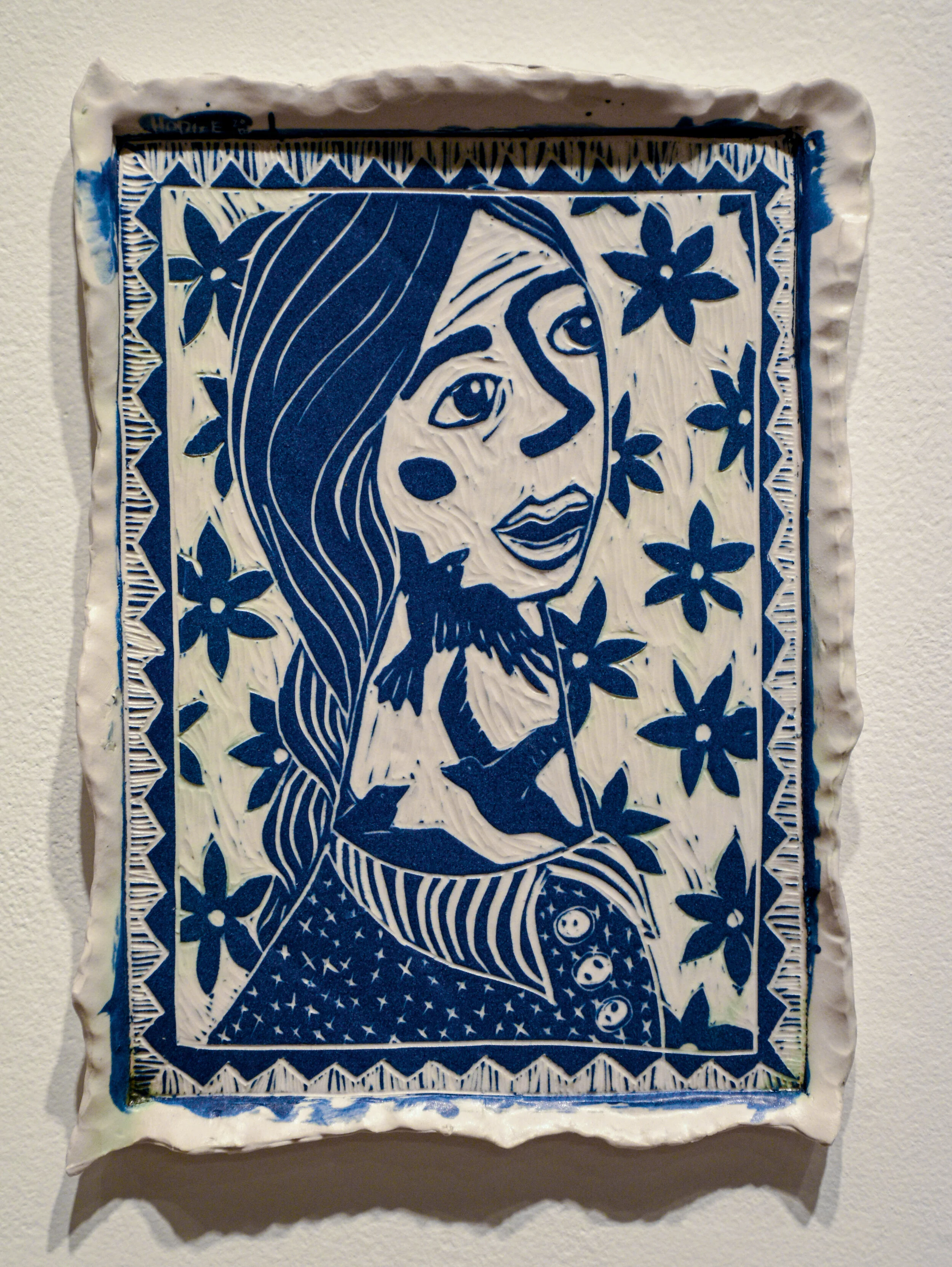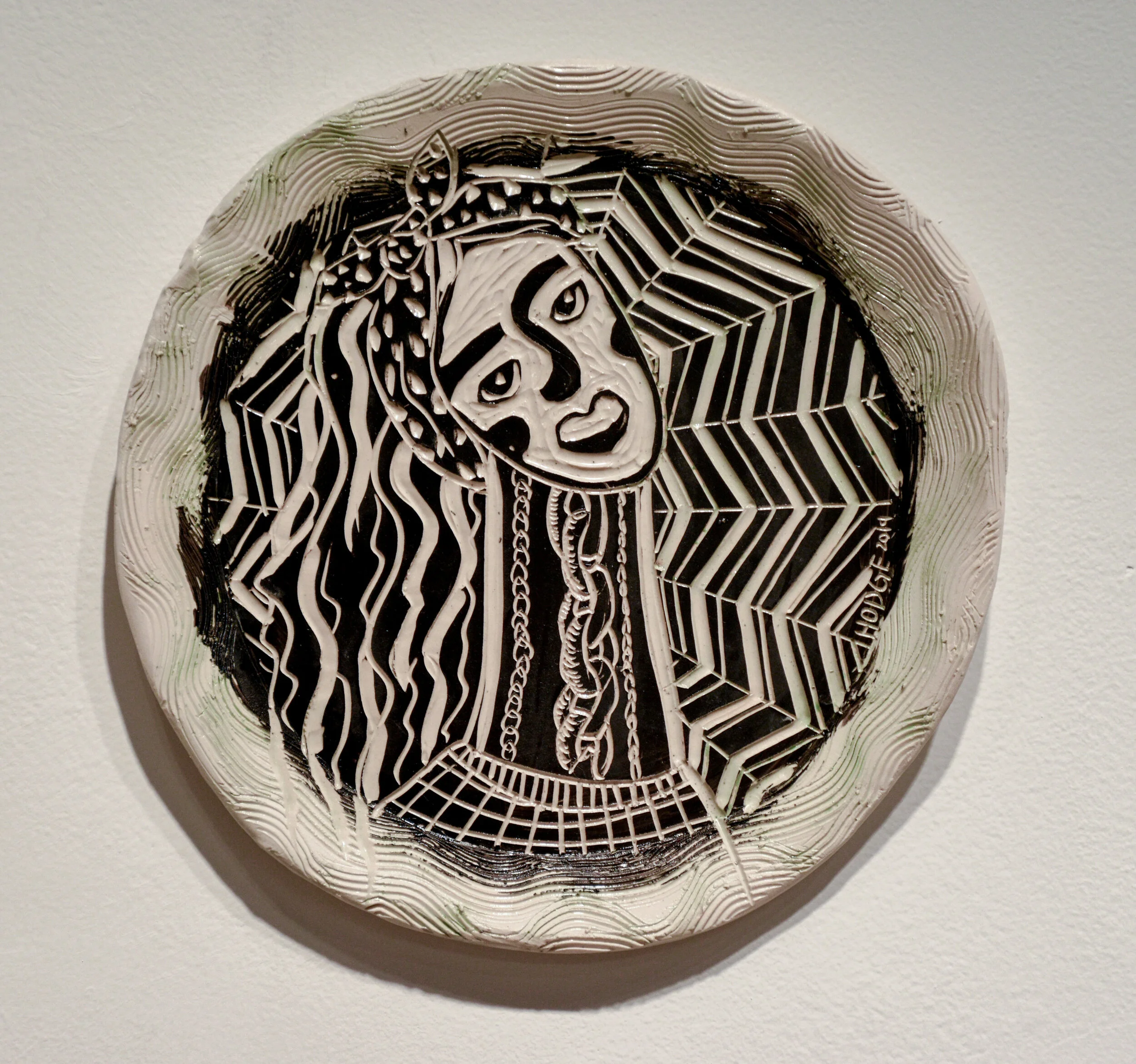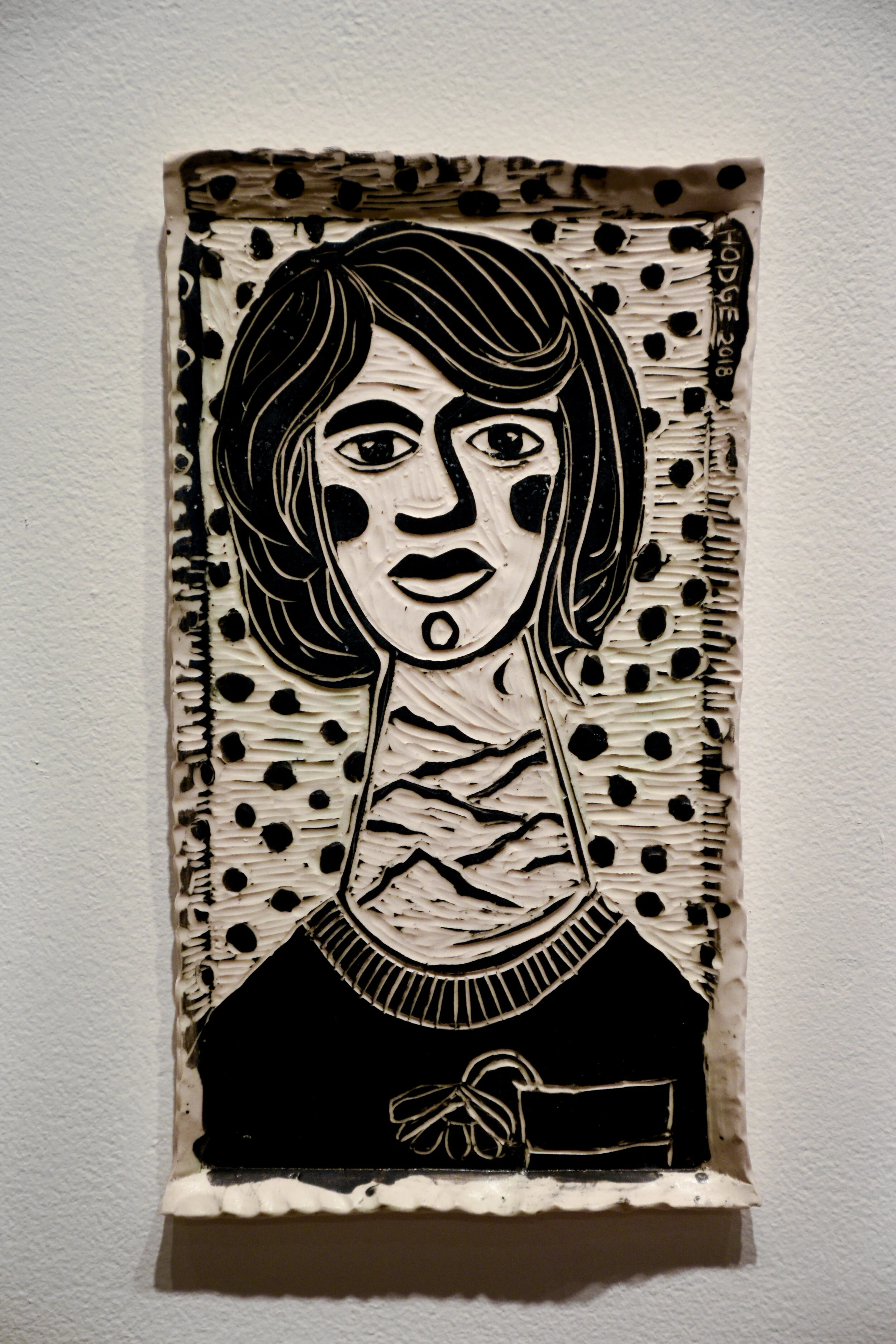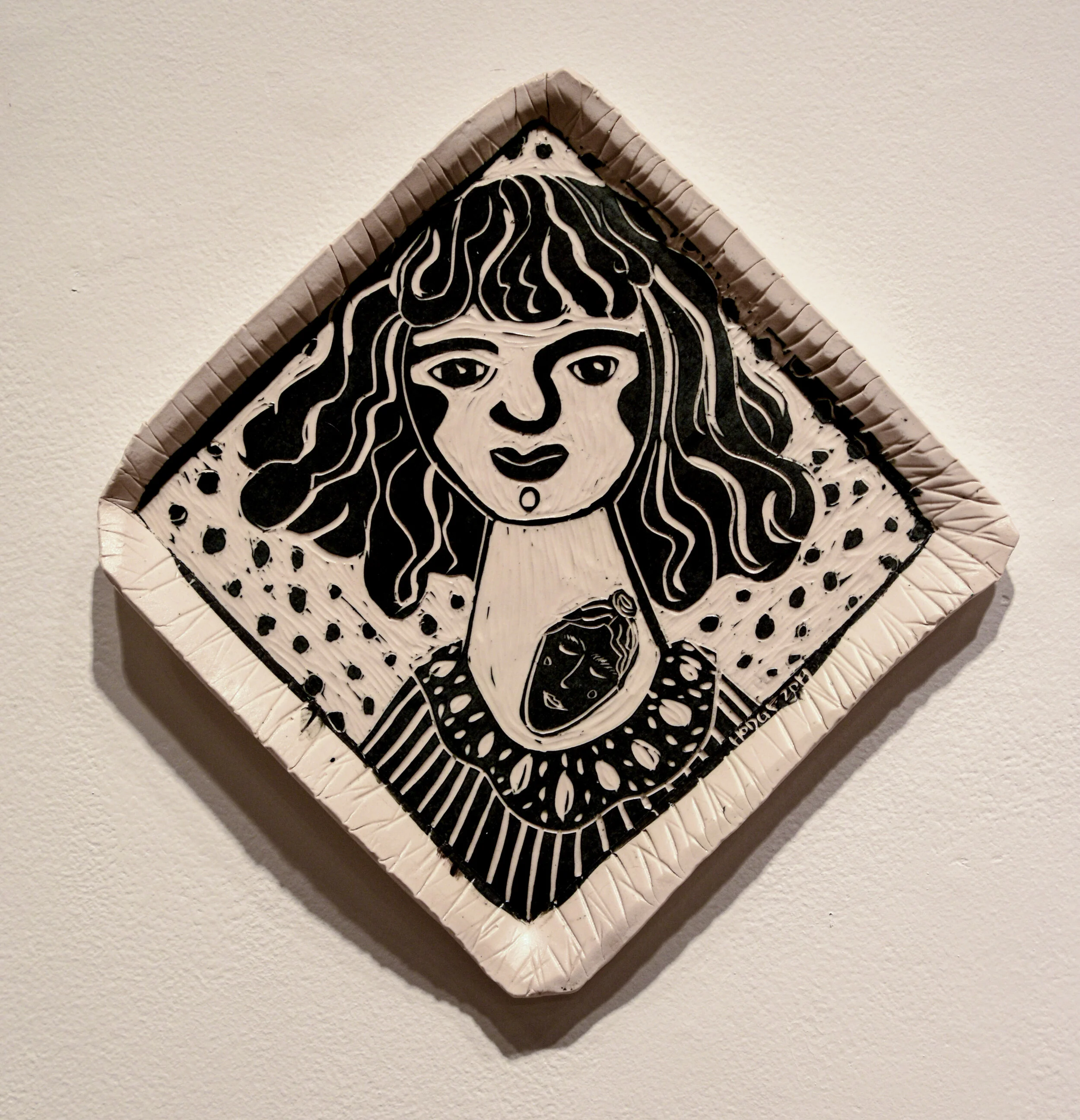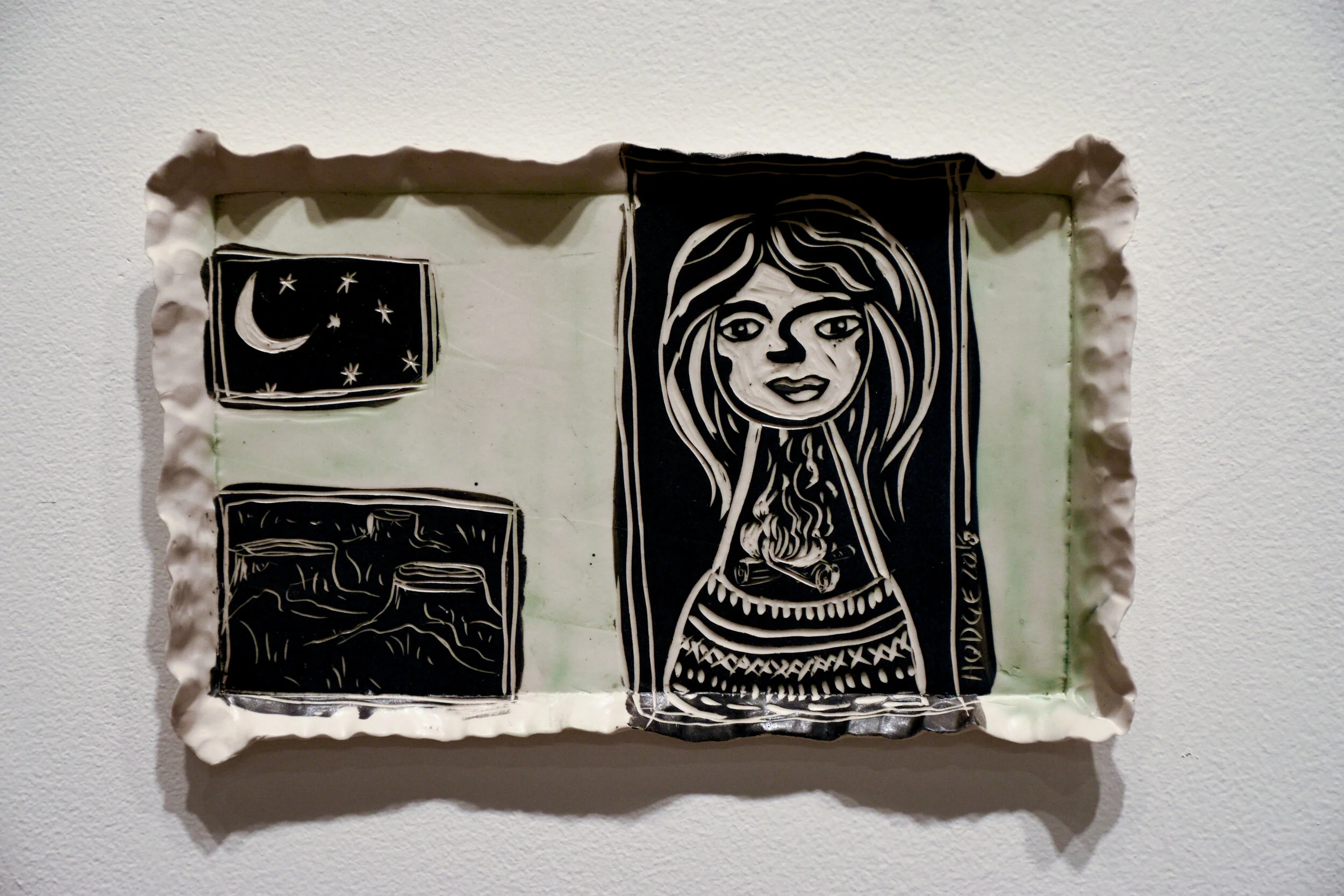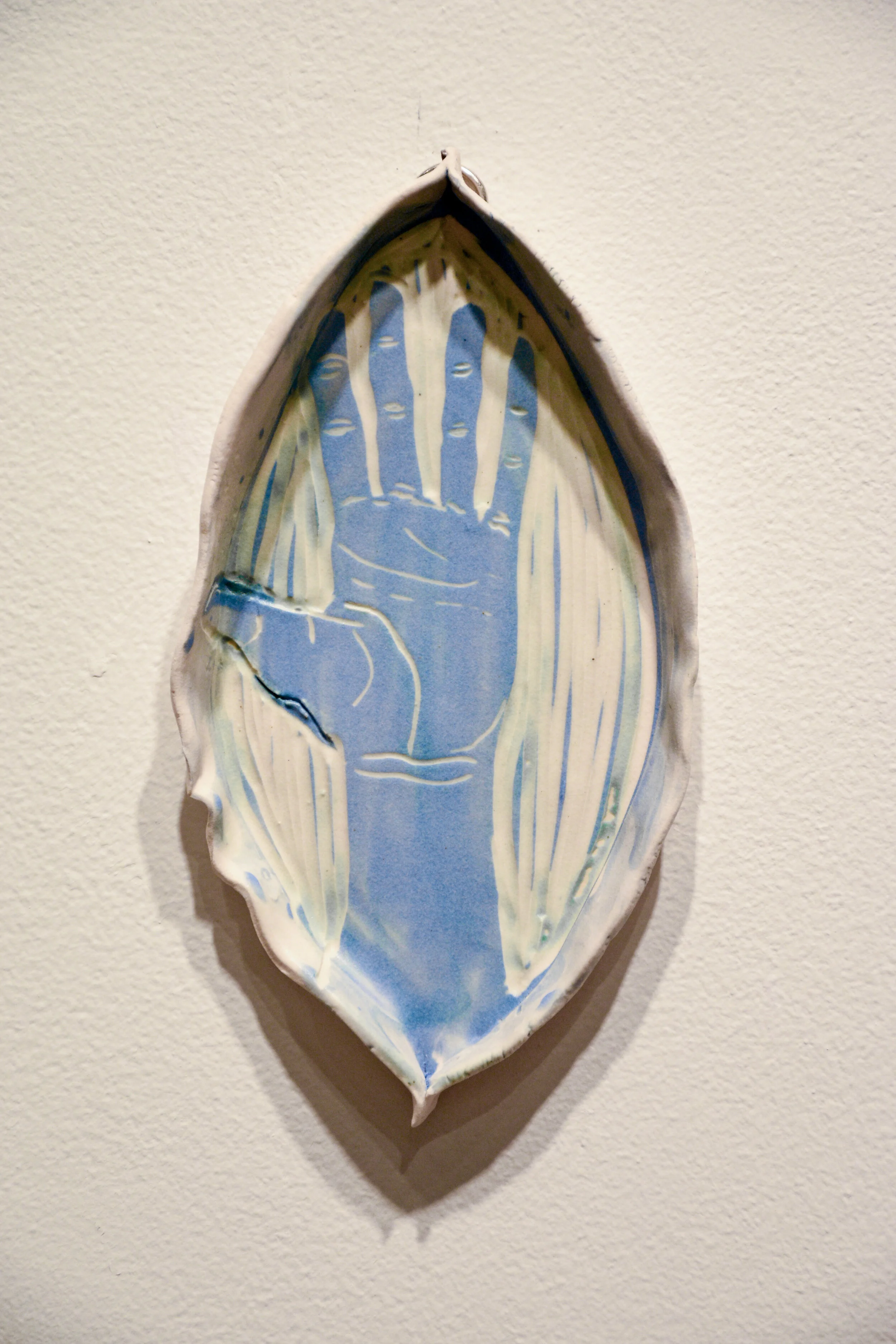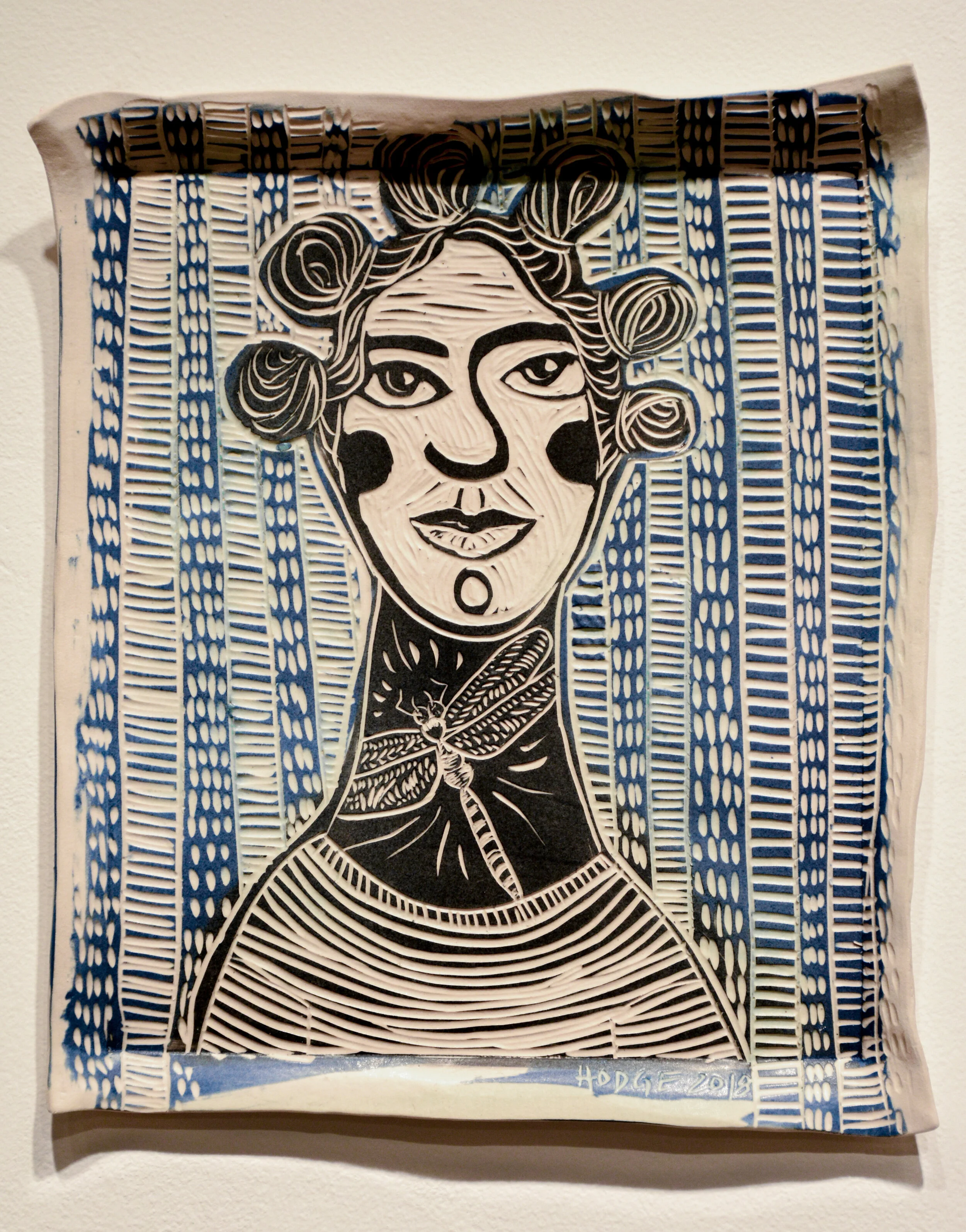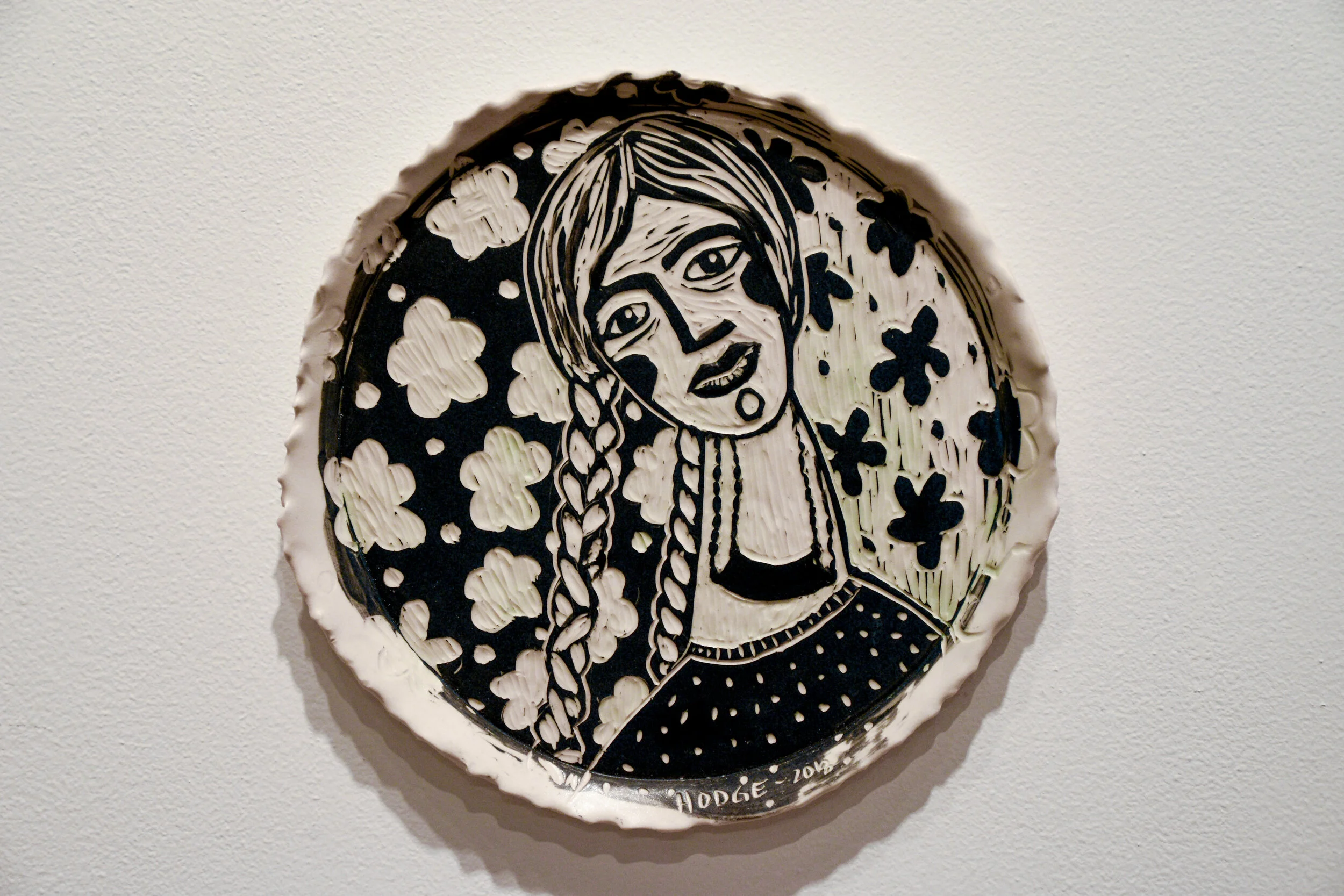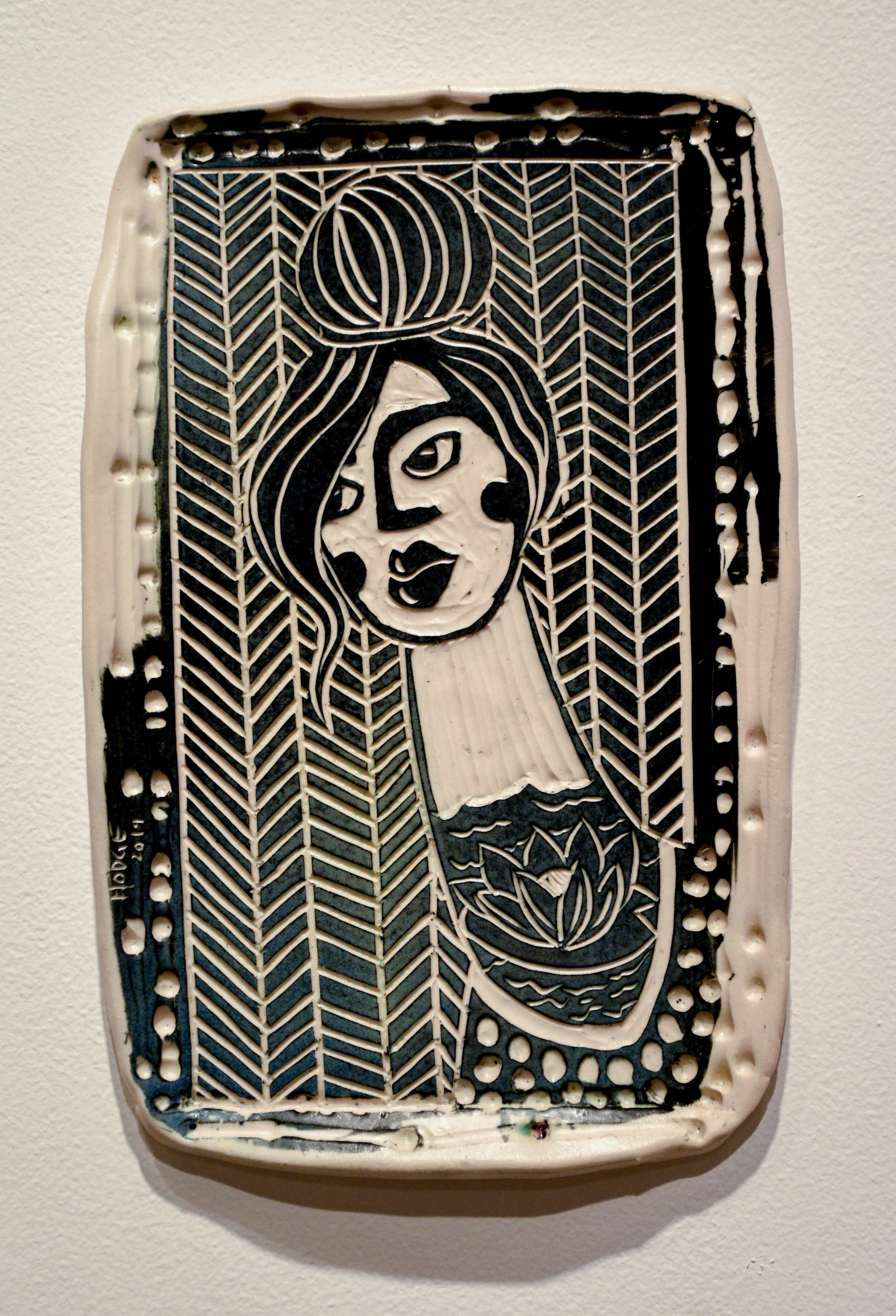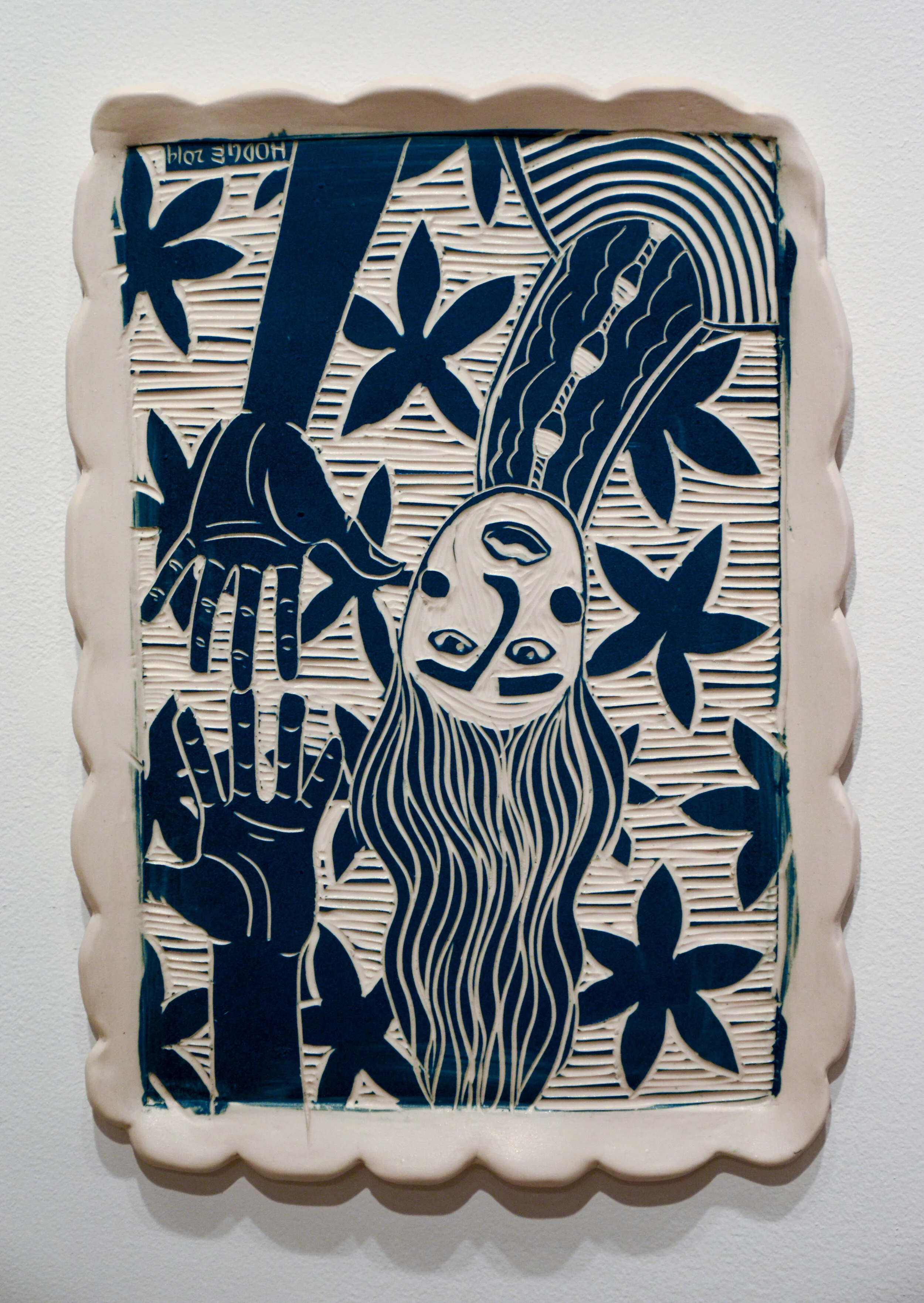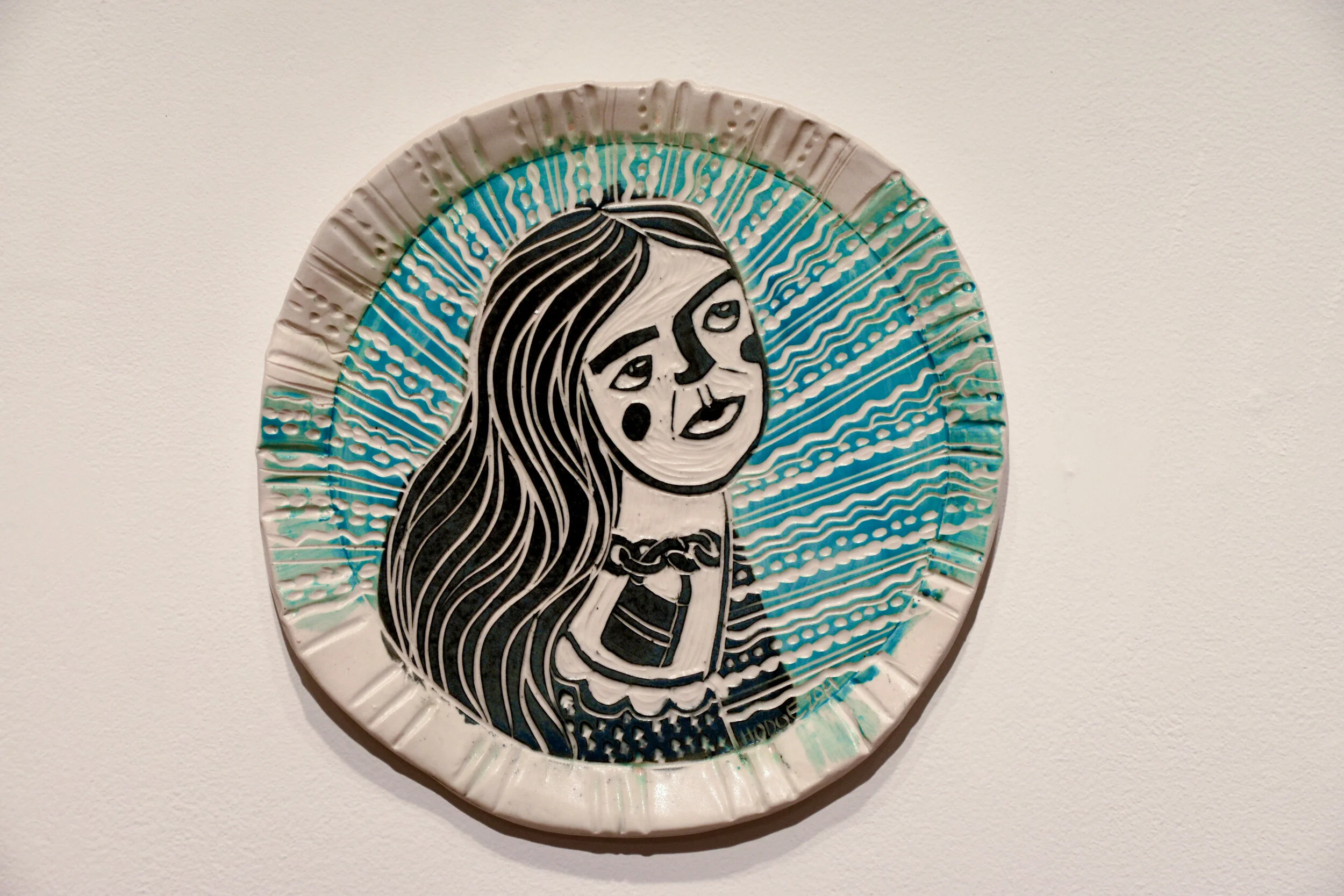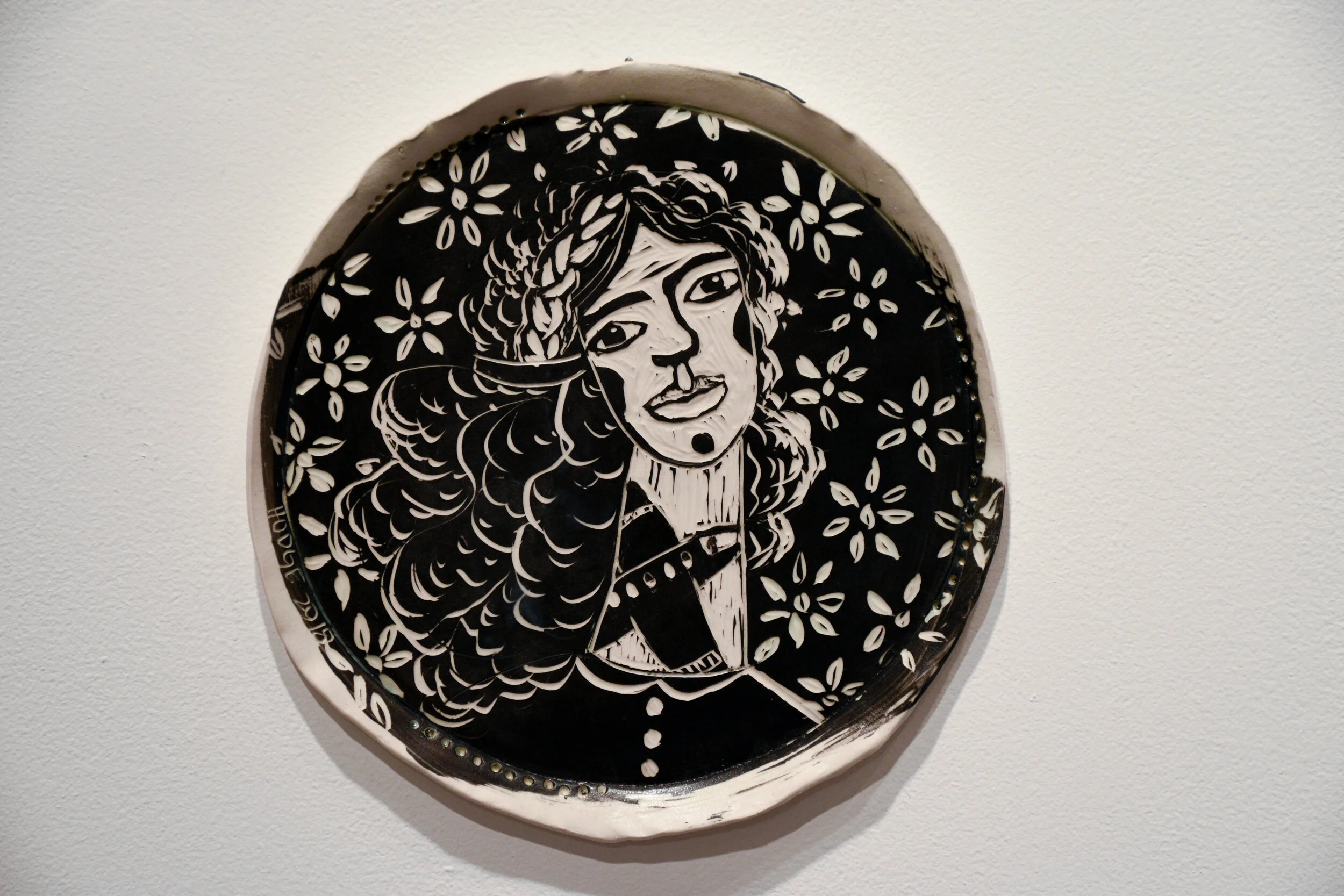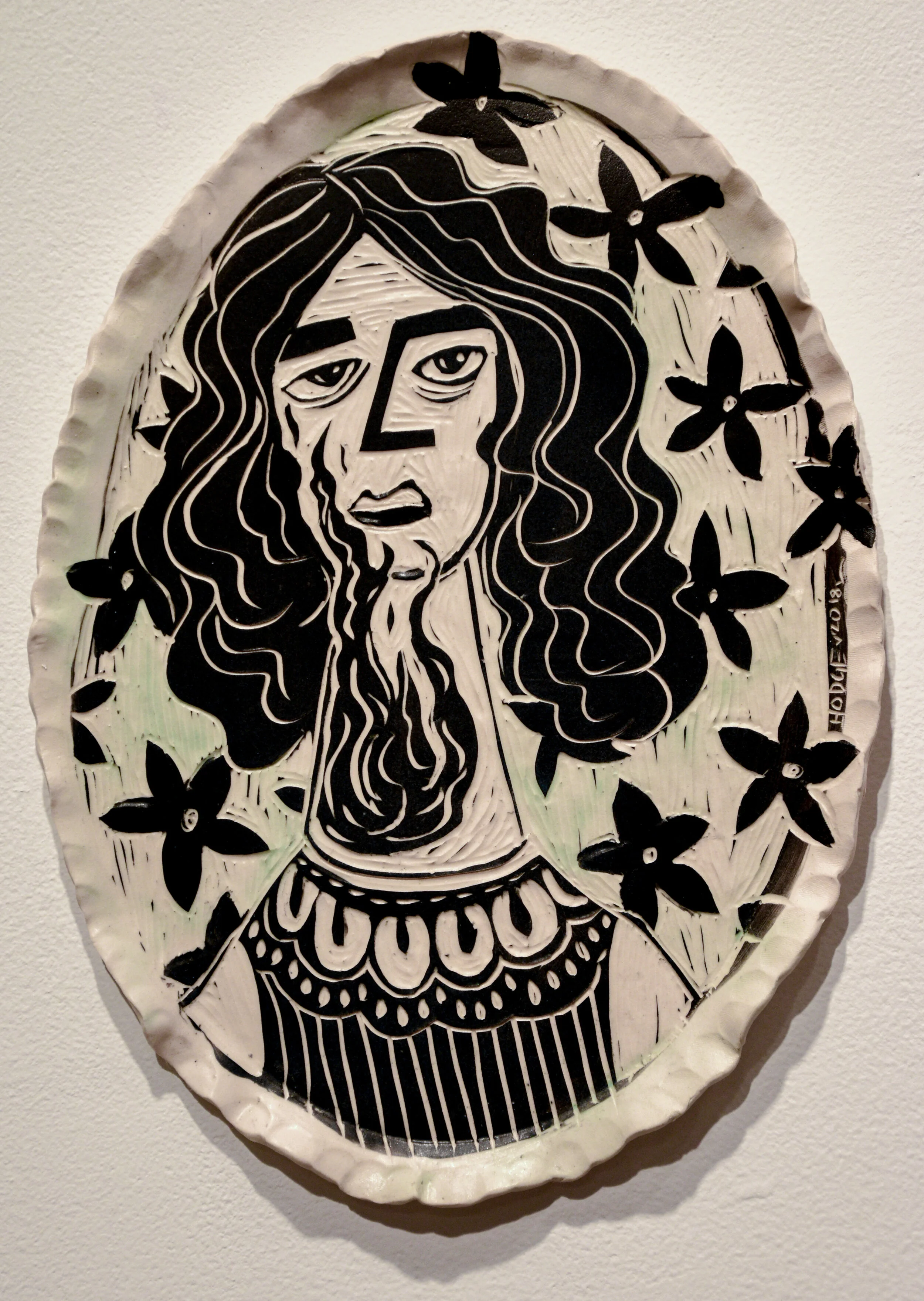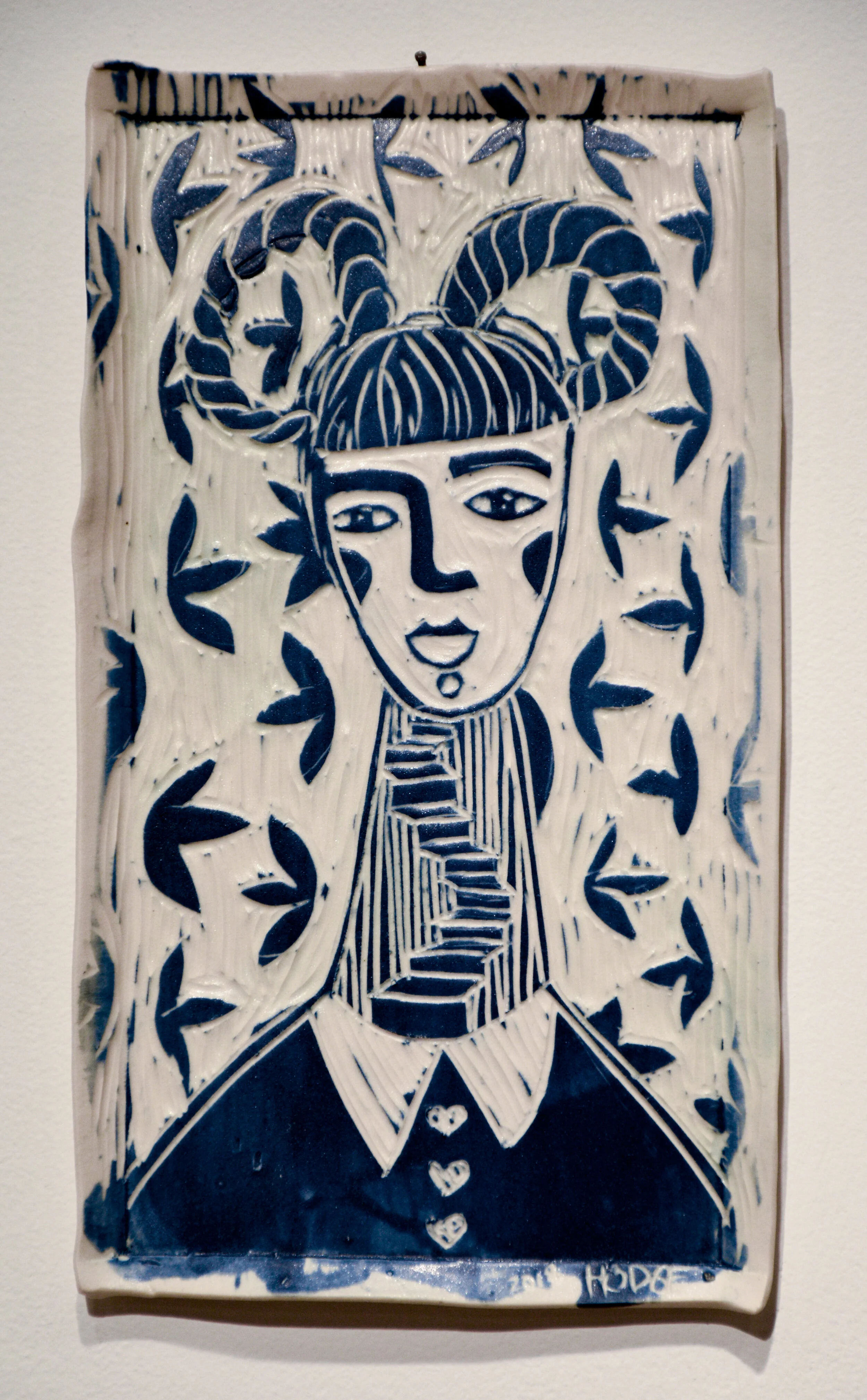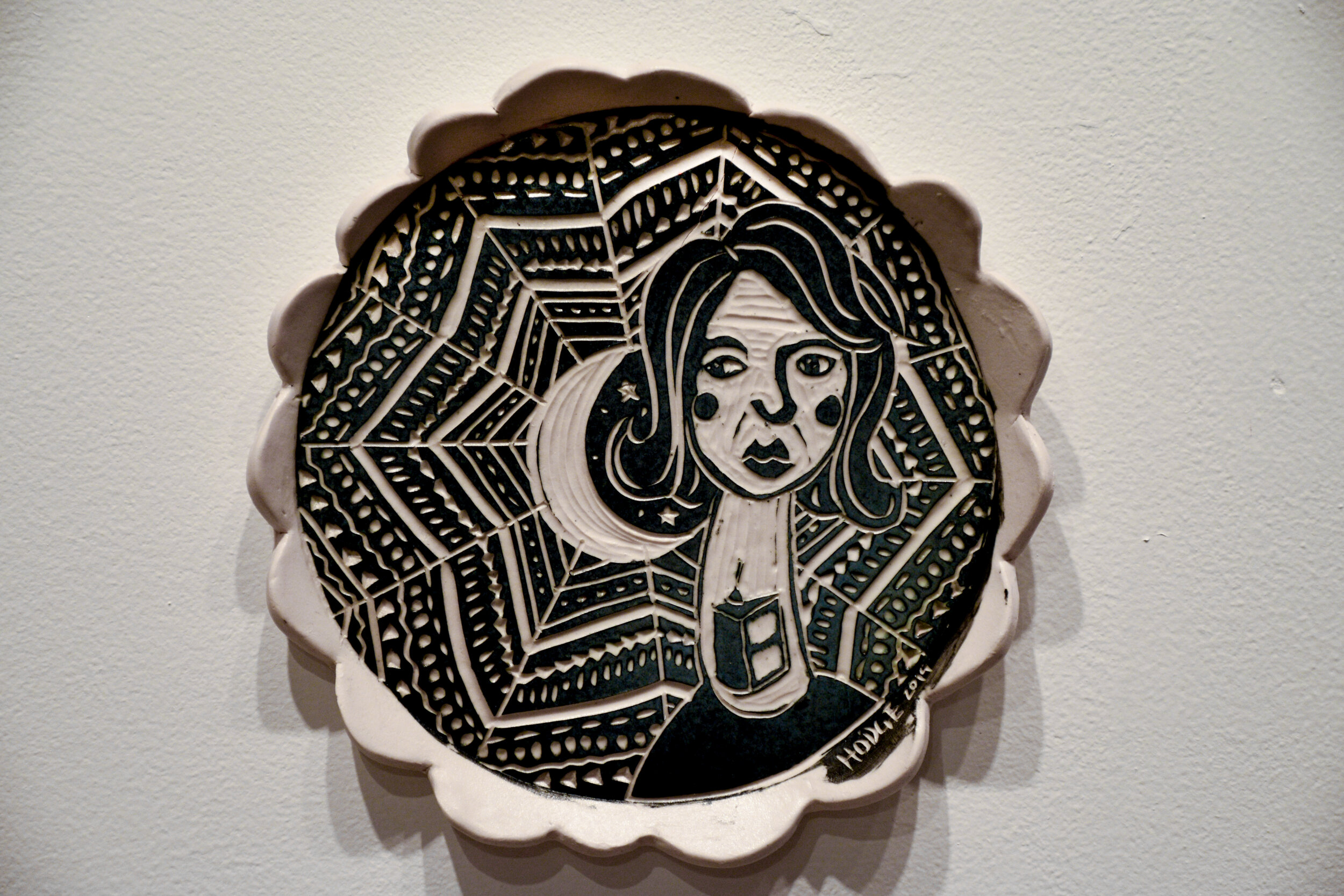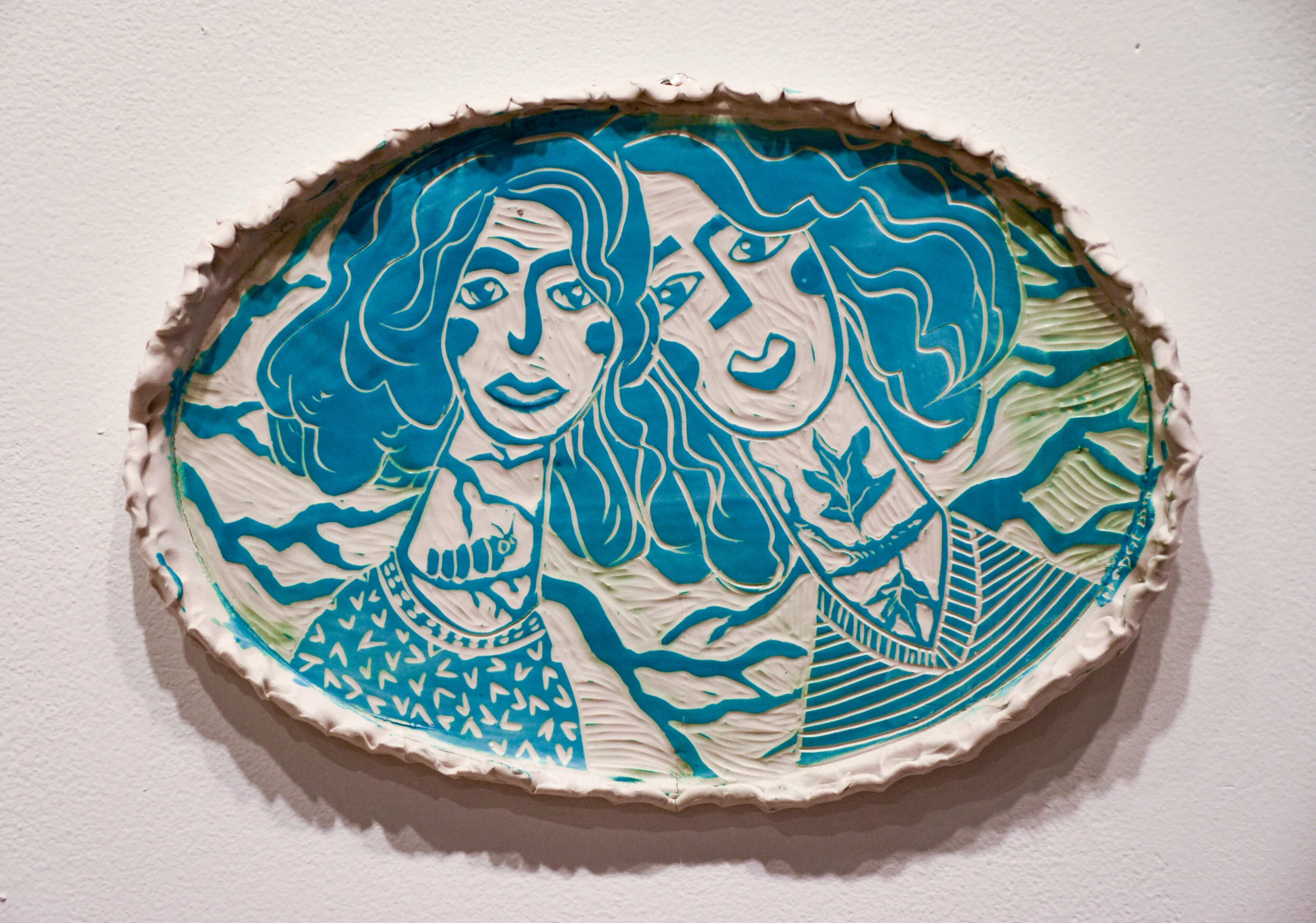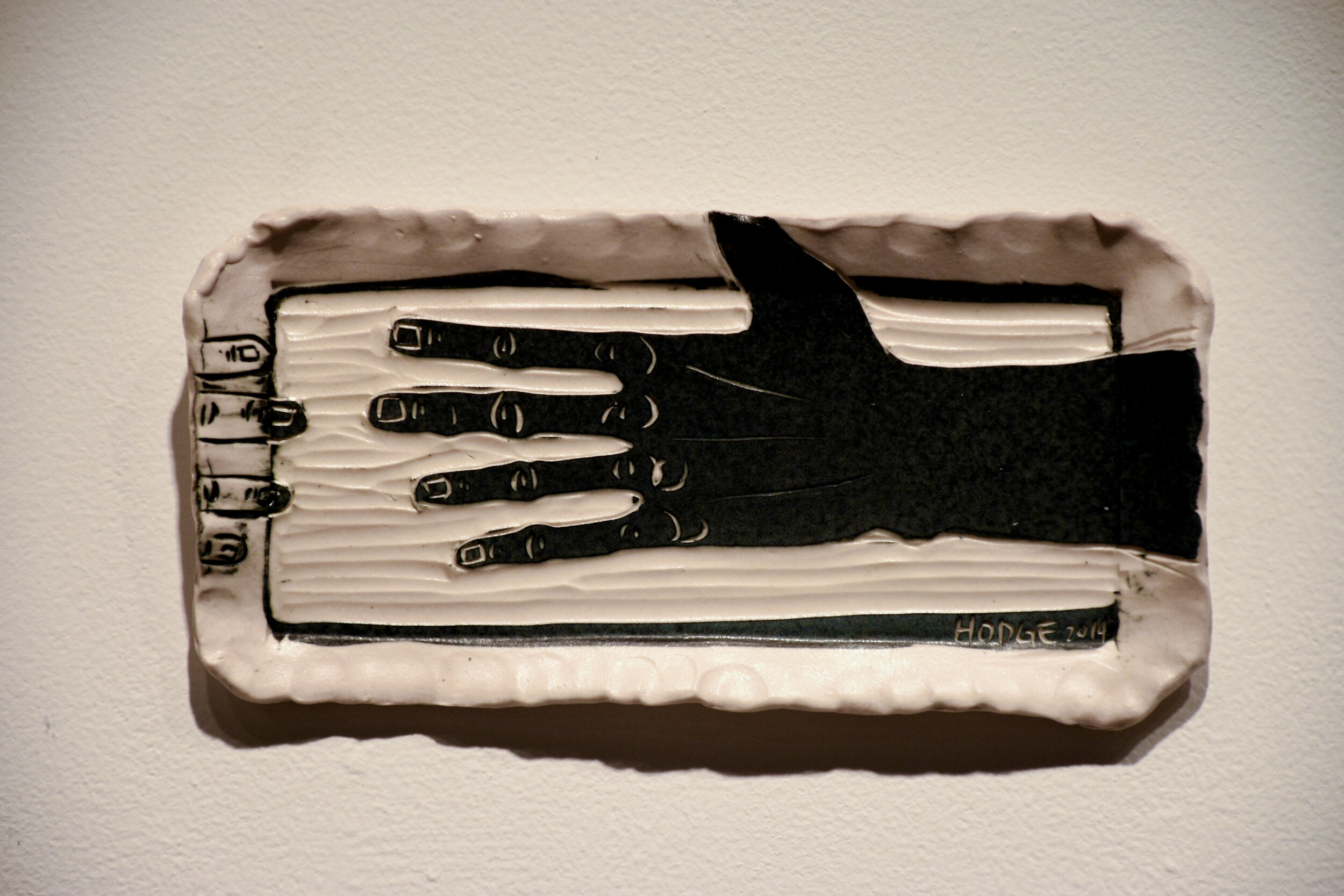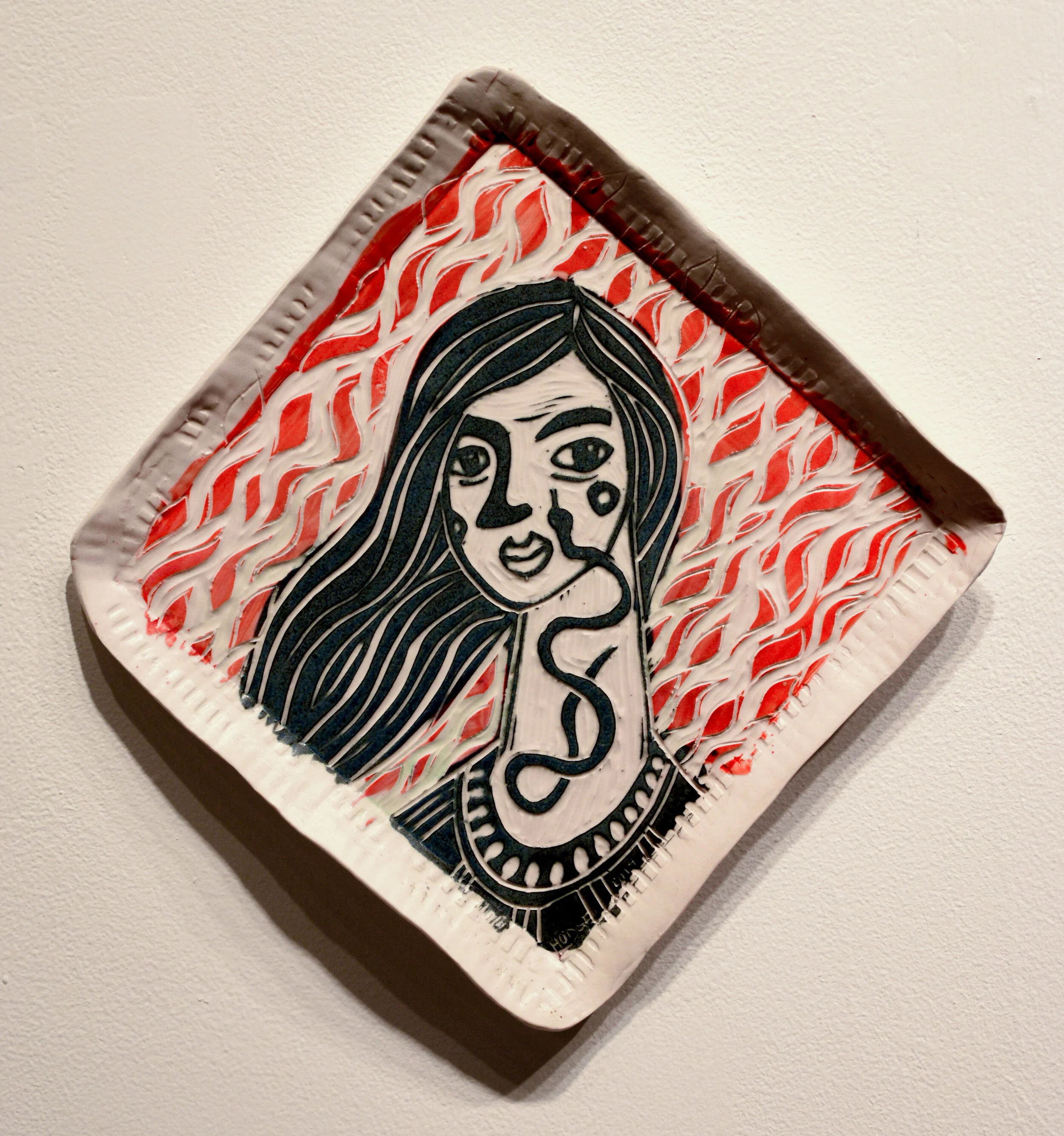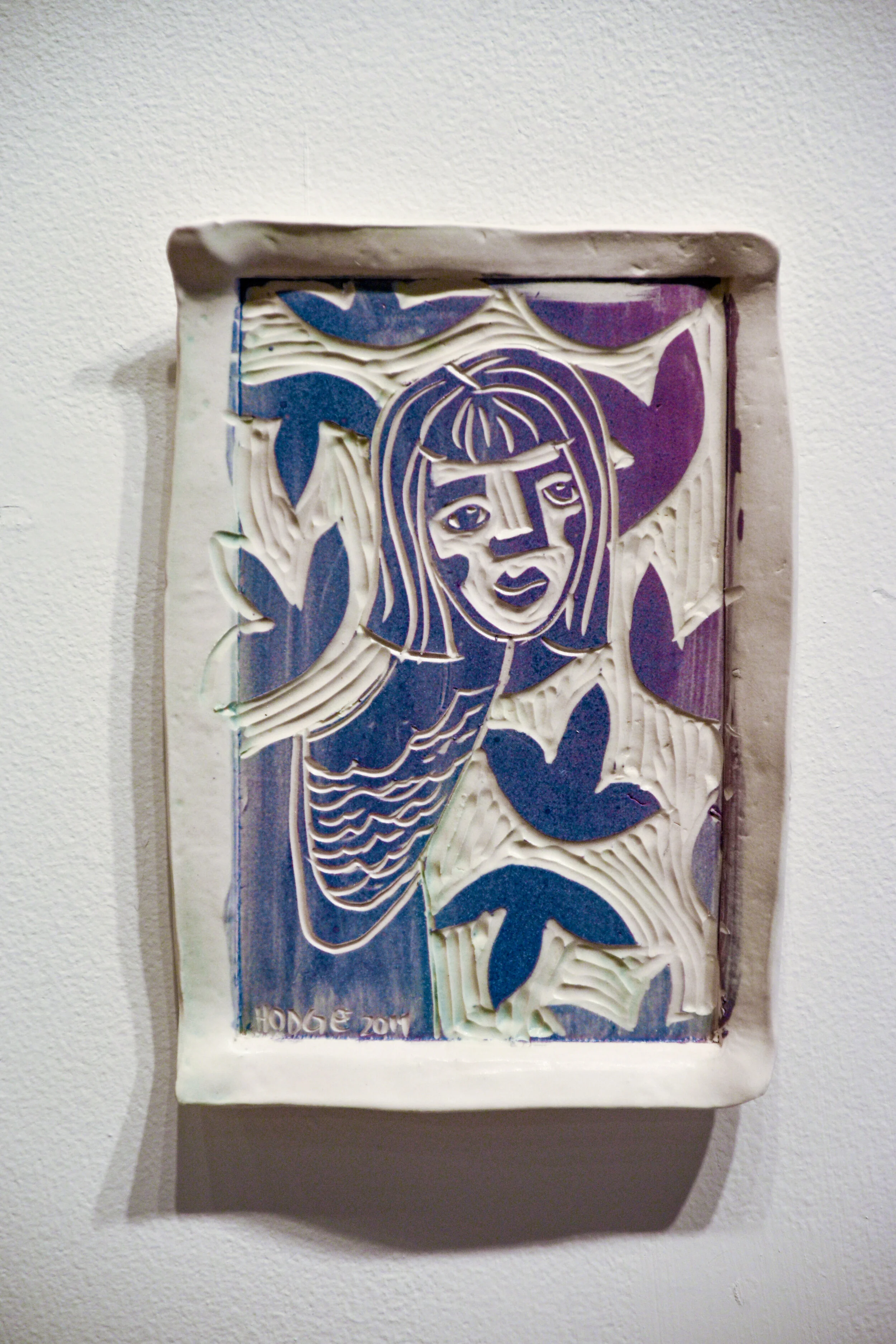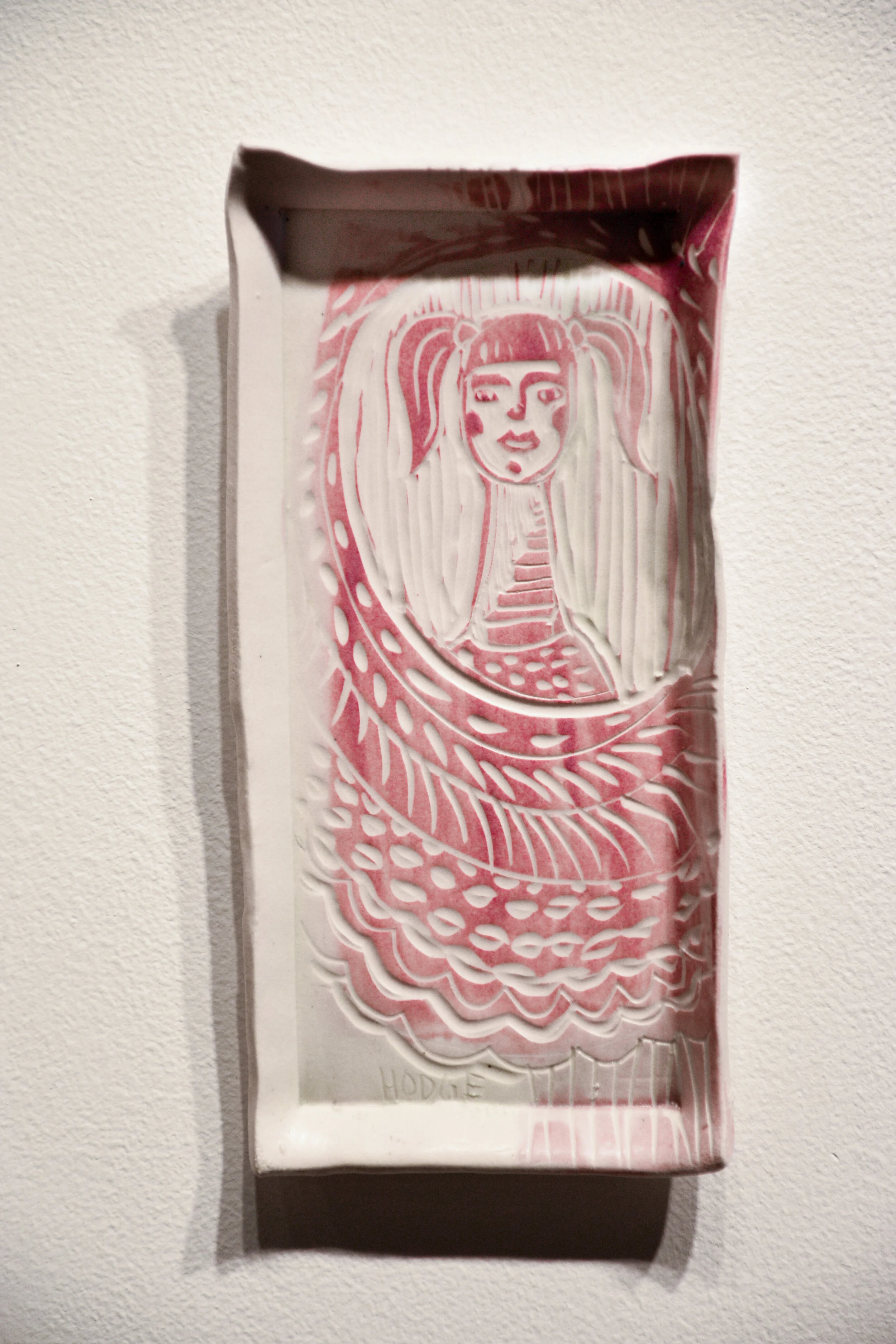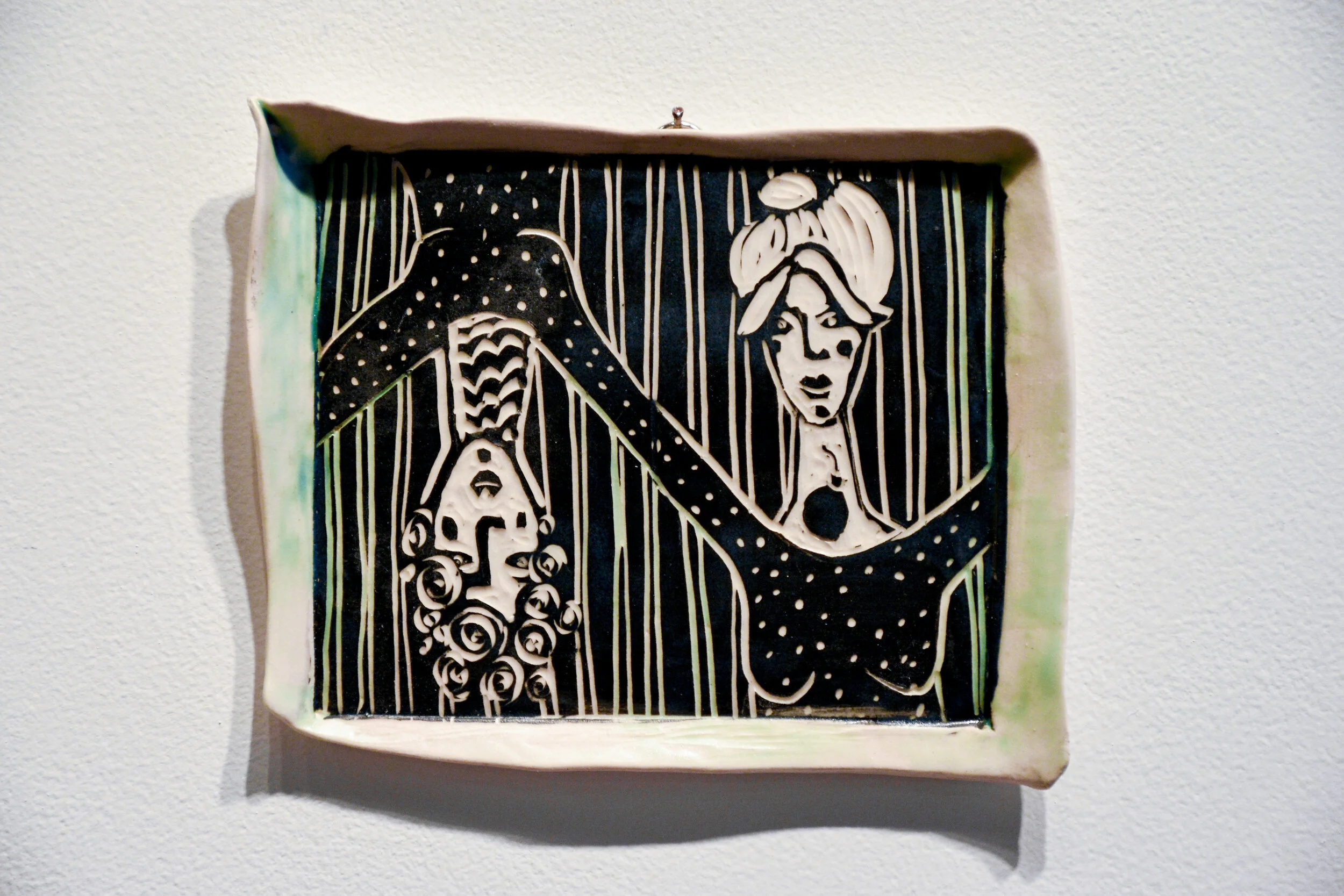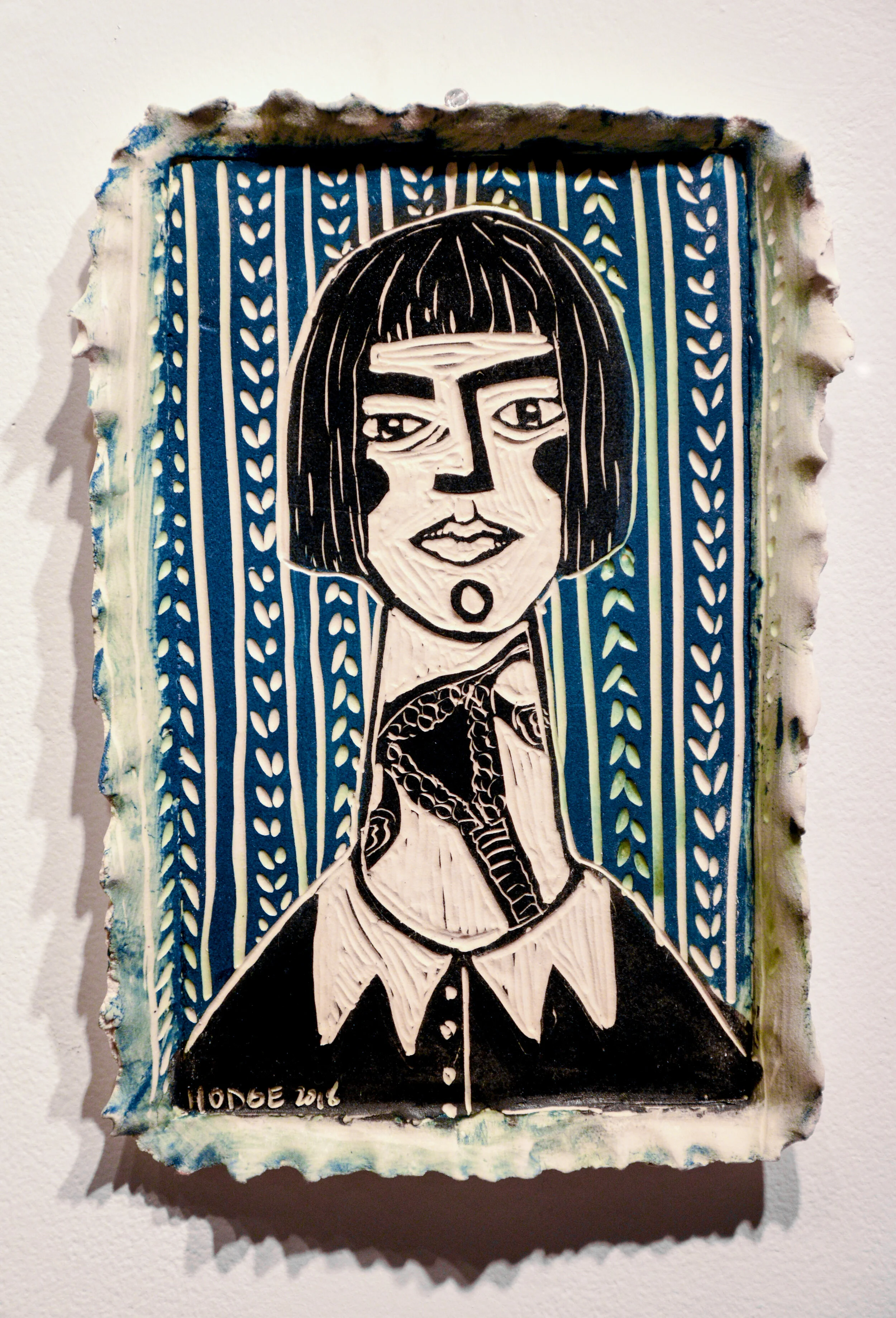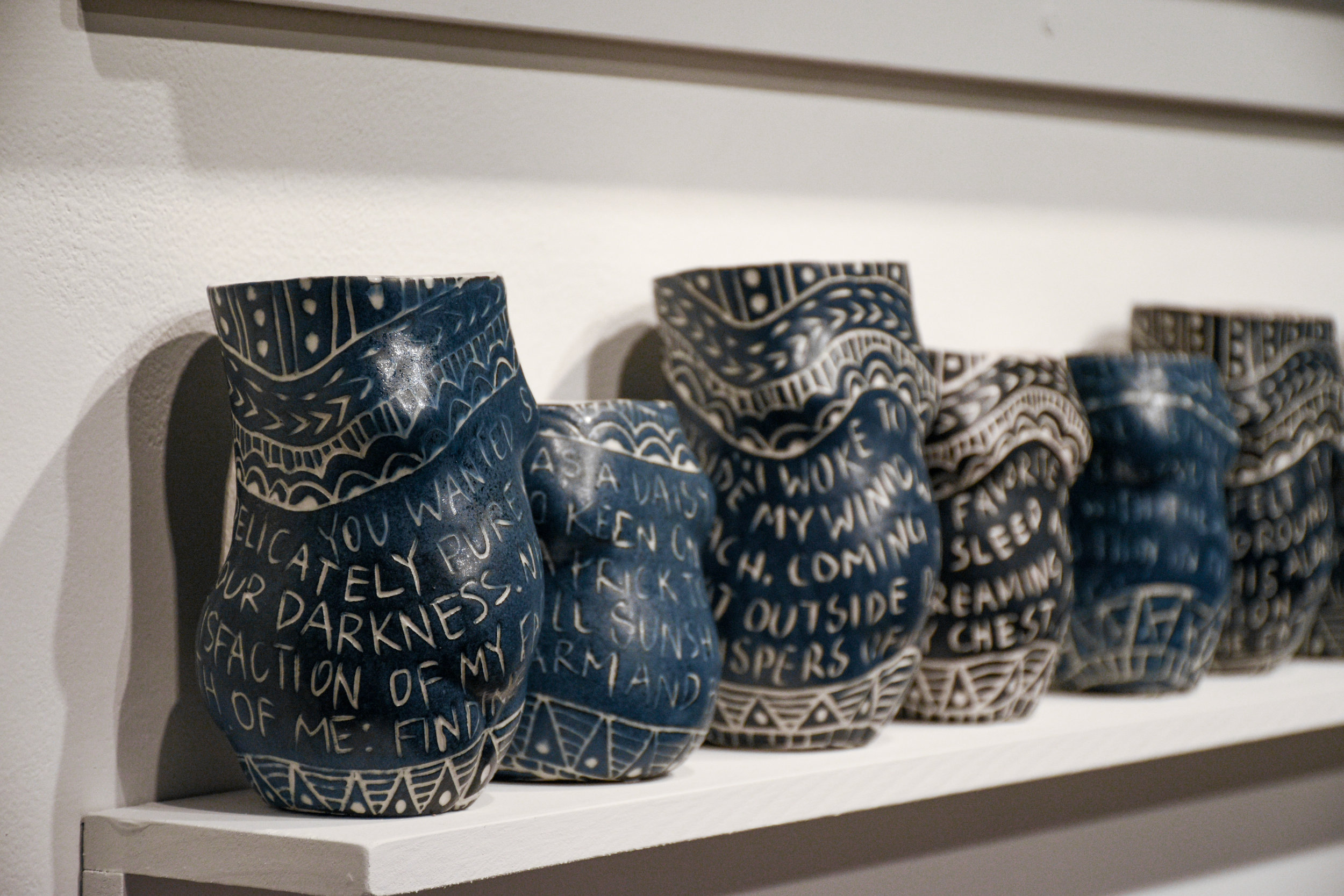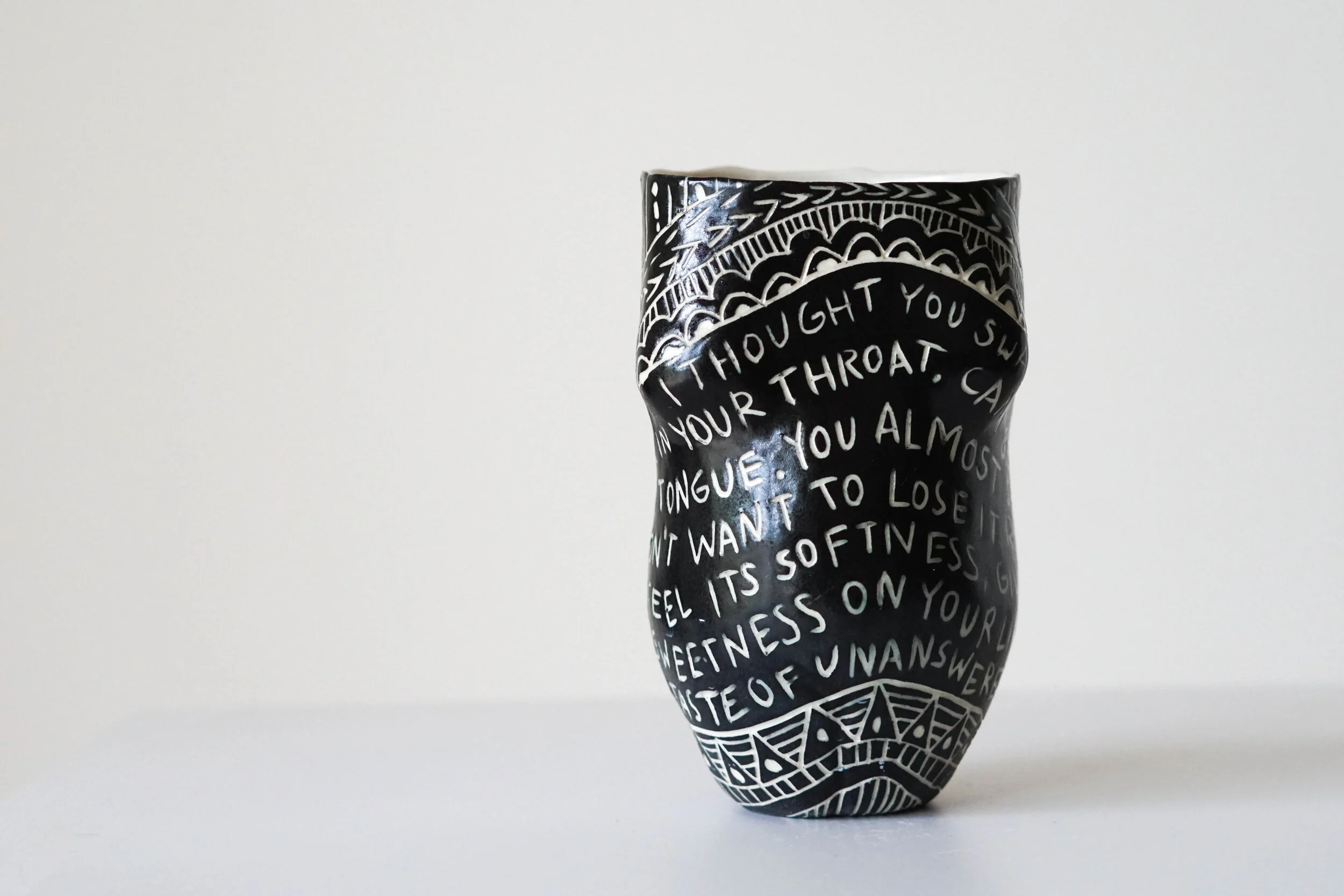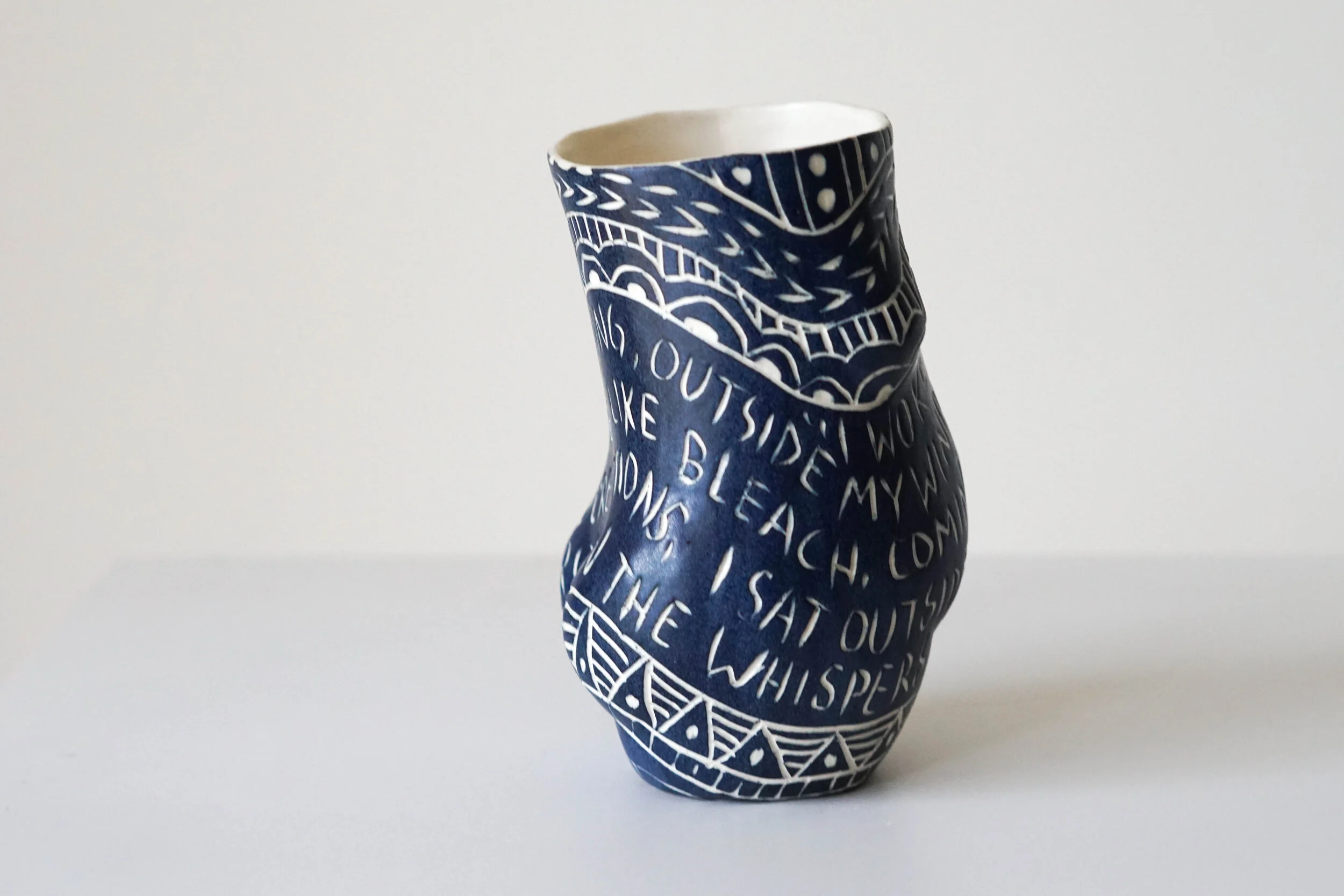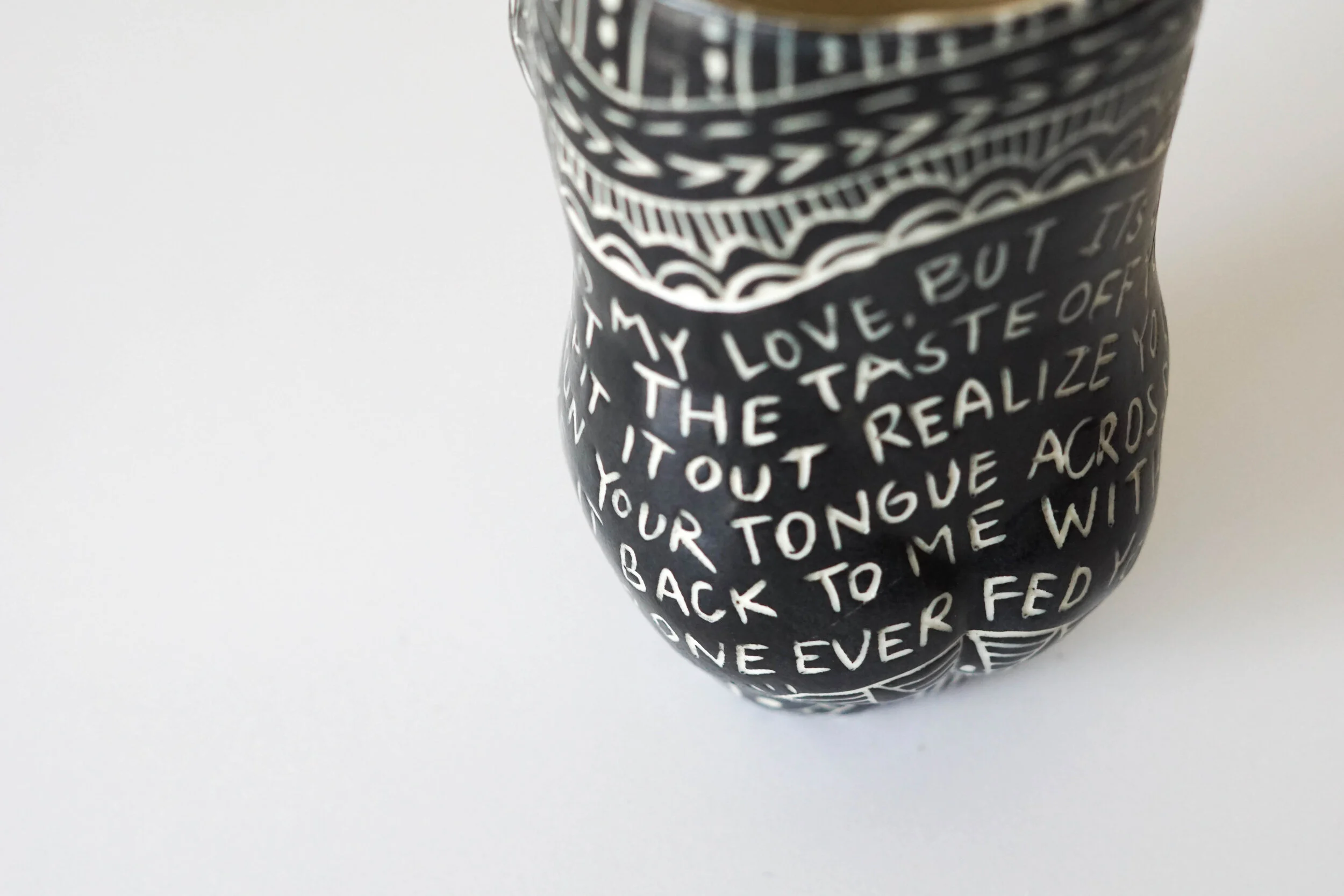In light of her
I ripped open their history
Patched it with the truth,
Drew you, with your bright eyes,
And your hollow throat
So the thing sitting on your voice
Is seen.
I strung our bodies together with sweet nothings
A cocoon of untaught love
We are reaching
And holding one another
We do not have the same history,
But our future: a mark of resistance
Our existence resonates, reverberates
Until the whole earth is shaking.
The three series that make up my thesis show all center around the woman as an art historical trope who becomes a contemporary archetype of tenderness and tenacity with her own narrative. The tradition of the woman as muse or object is questioned and turned upside down as I give my women the position of subject, i.e. the position of power. The jars which uphold pairs of women are the ultimate overturn of male dominance as I remove and replace all male characters from famous artworks with women. The couples care for one another and are so consumed in their connection that the viewer is ignored. They do not exist for the viewer’s fantasy because their desires are already filled. Through these three bodies of work, I create archival objects which combine to build a narrative of women’s power, based on the Love Ethic, as discussed by bell hooks in her book, All About Love. Further, notions of power are investigated in tandem with Mary Follett’s writings on power, which delineate Western conception as power-over, and the feminist ideal as power-with.
The portraits, loaded with symbolic imagery, gaze out at the viewer, with a variety of intensities and emotions. This is to say, each woman has a story, which may not be directly evident; however through the use of iconic imagery and expression, some narrative is implied. Below is the full collection of portraits, in roughly the order one would see as they walked into the gallery.
The lady cups reference the ancient tradition of feminine totems and goddess figures with their plump bellies and wide hips. In contrast to contemporary beauty ideals, these figures demonstrate the capacity for life and abundance that used to be celebrated. By covering large sections of their forms with my own poetic text, I fill them with a narrative of love, each poem spilling from one cup to the next. The continuity across feminine forms reflects the way that women’s stories are often fragmented by culture and time.
